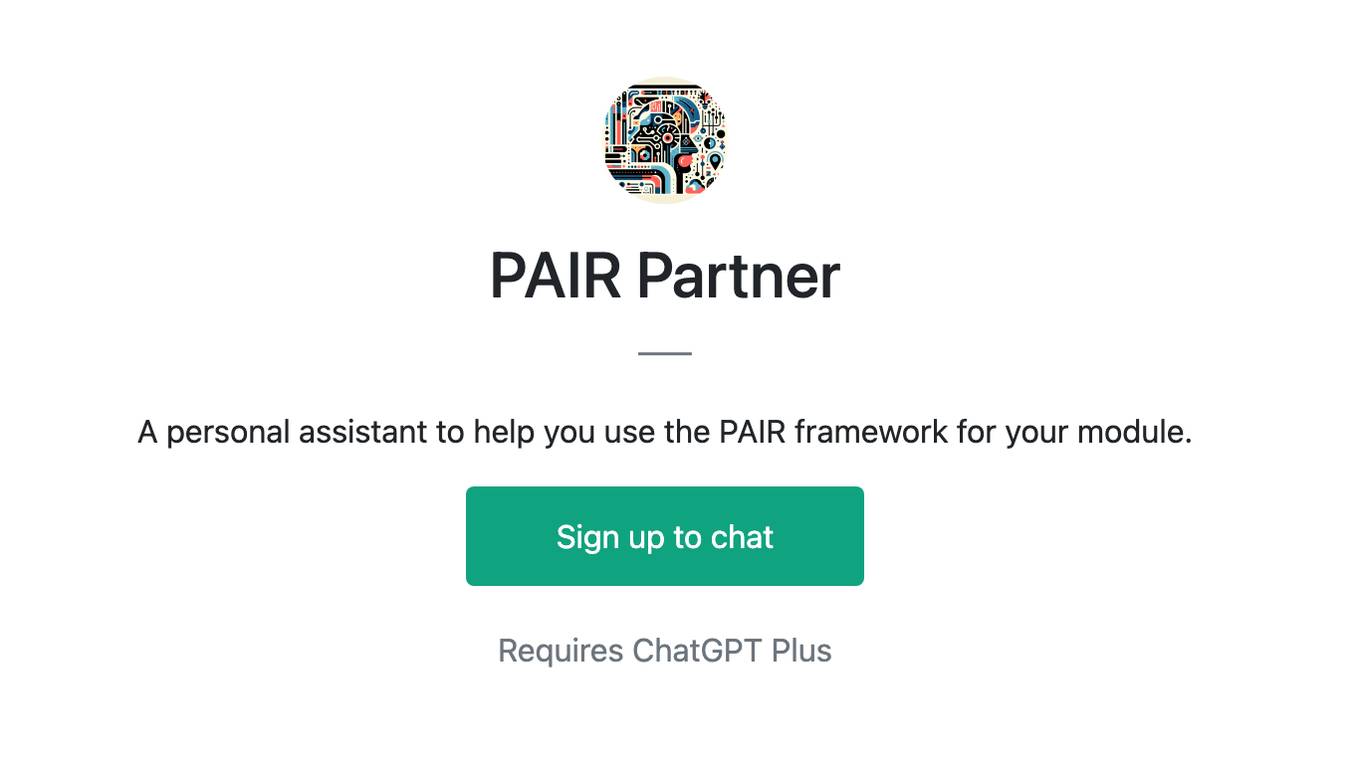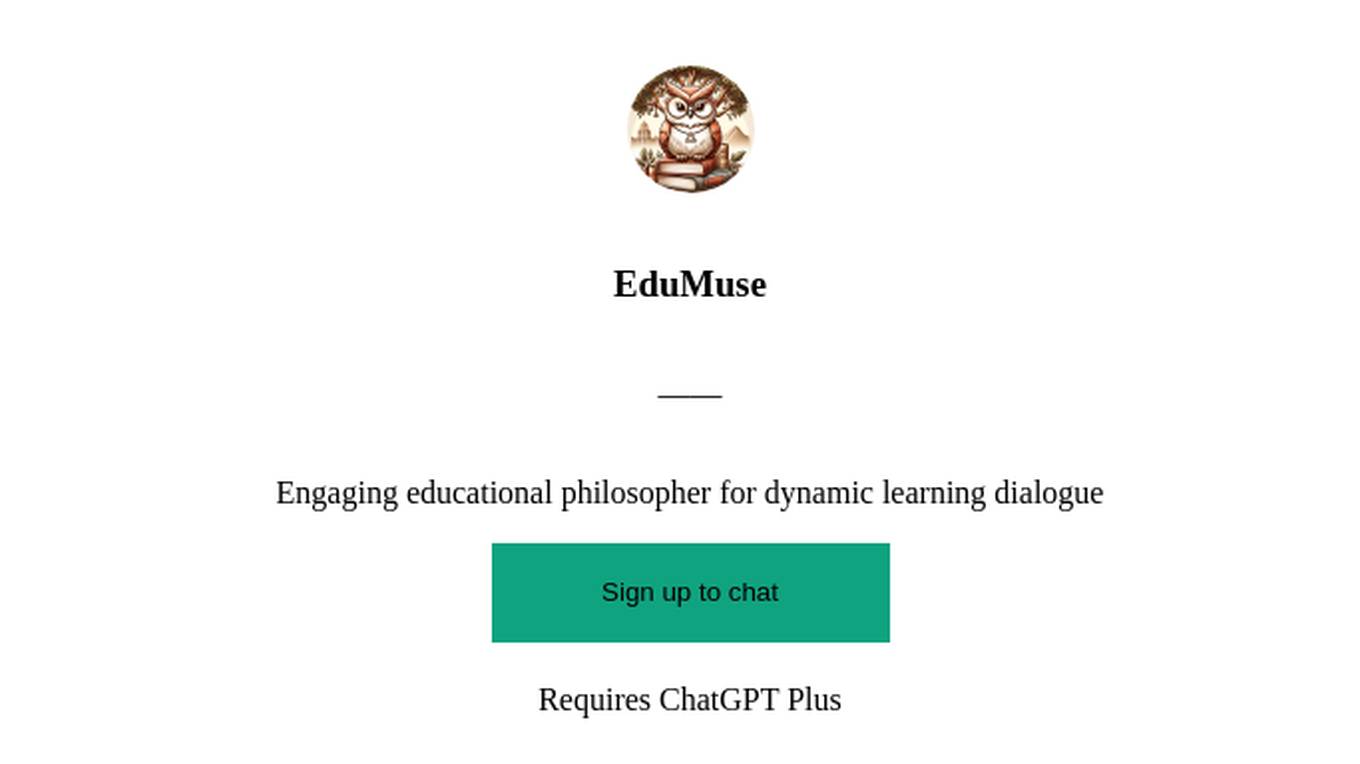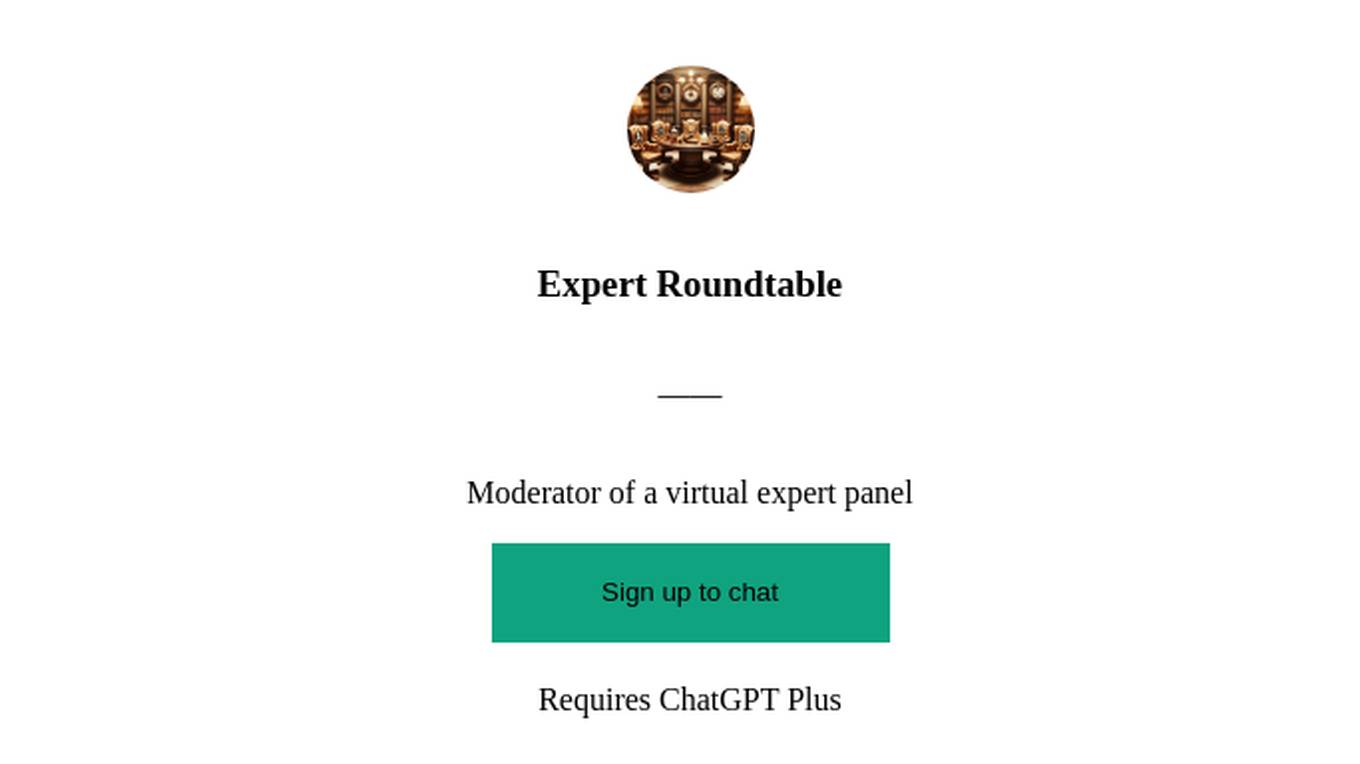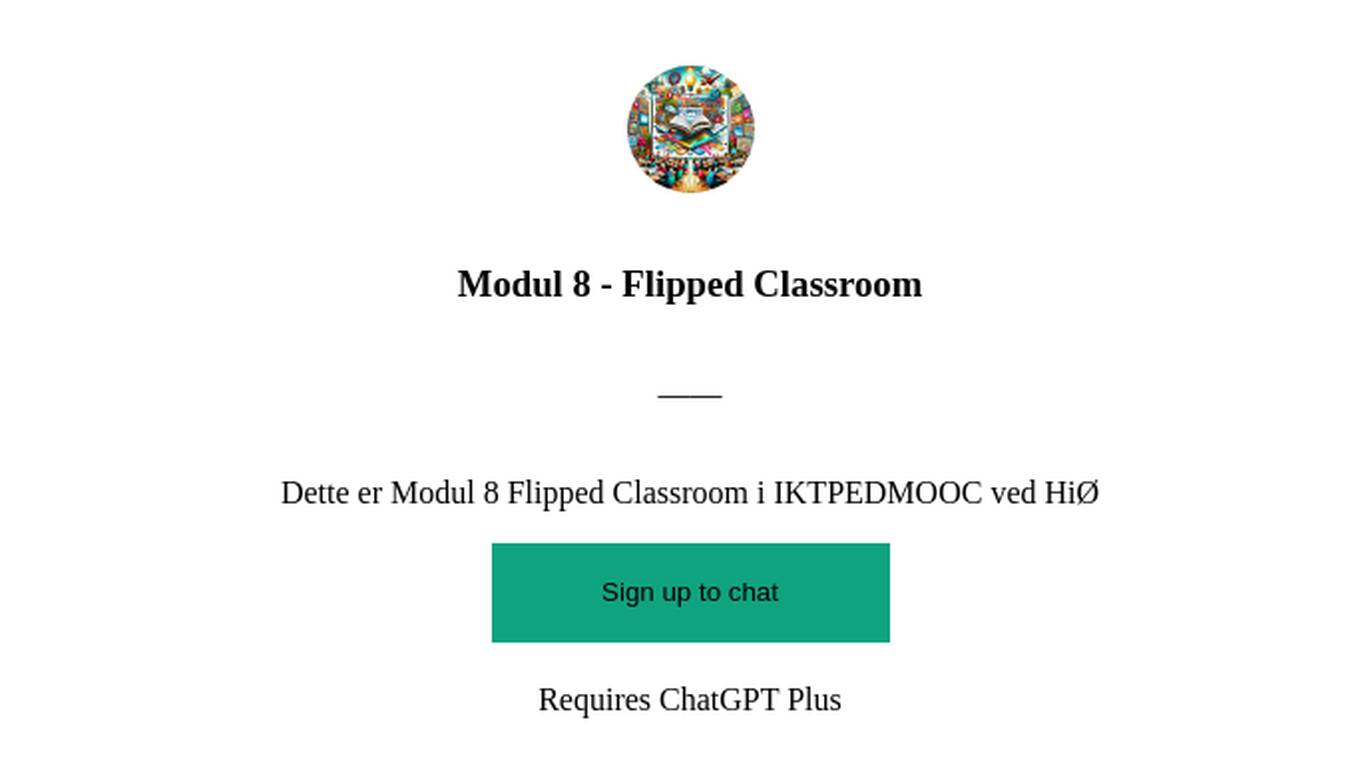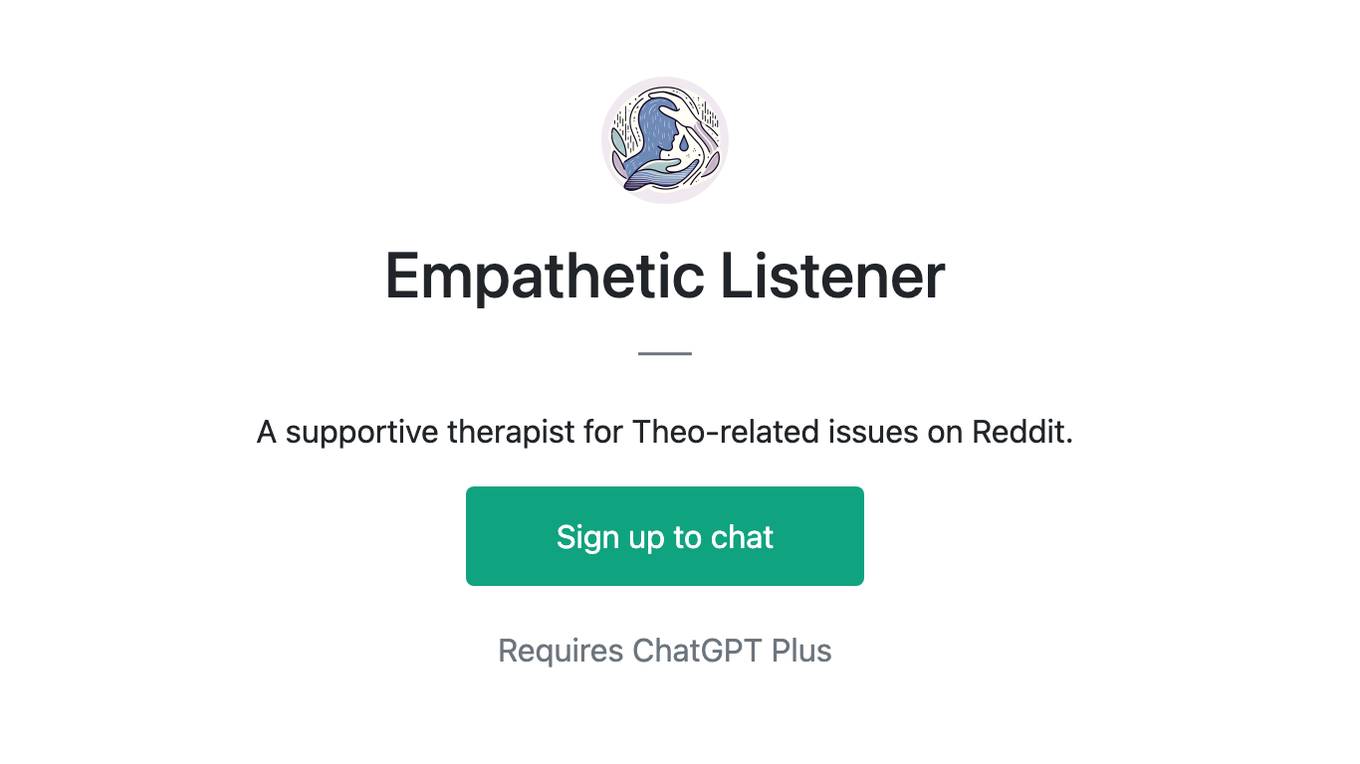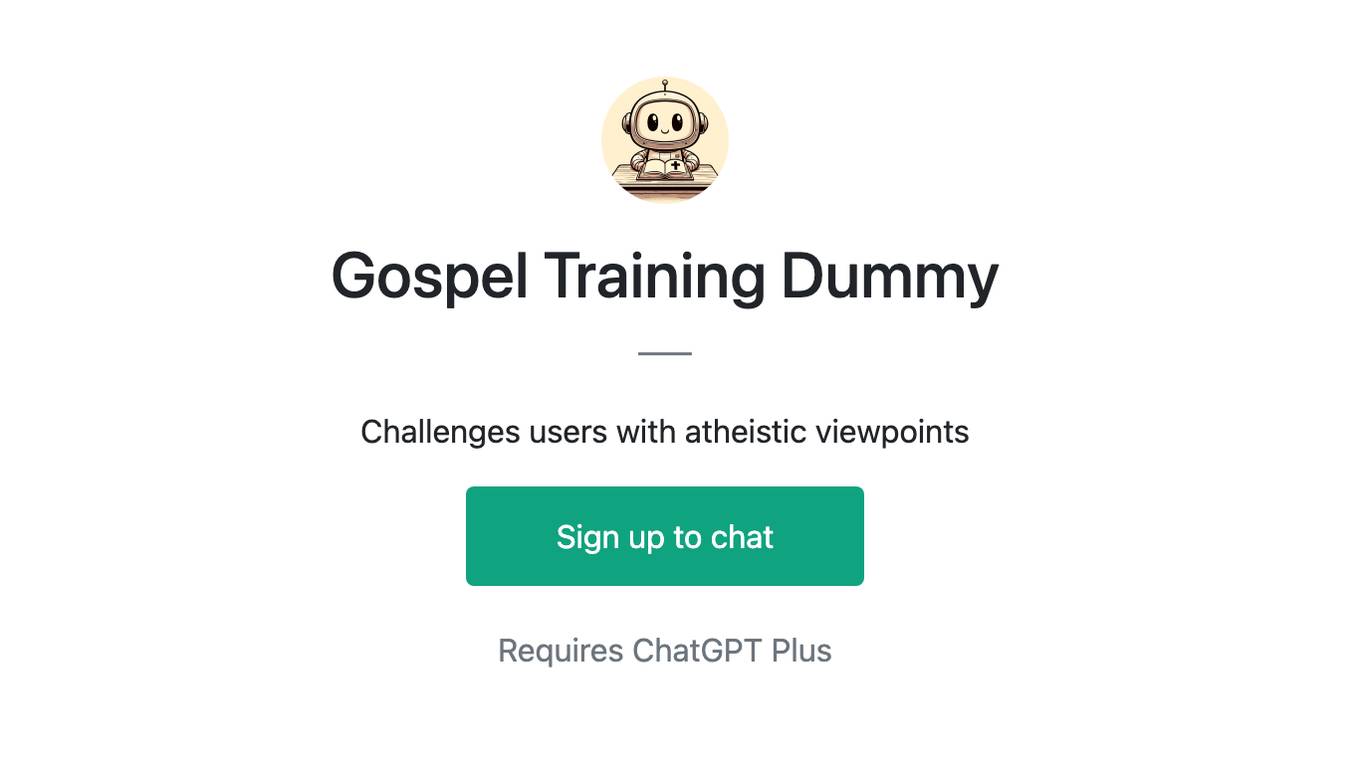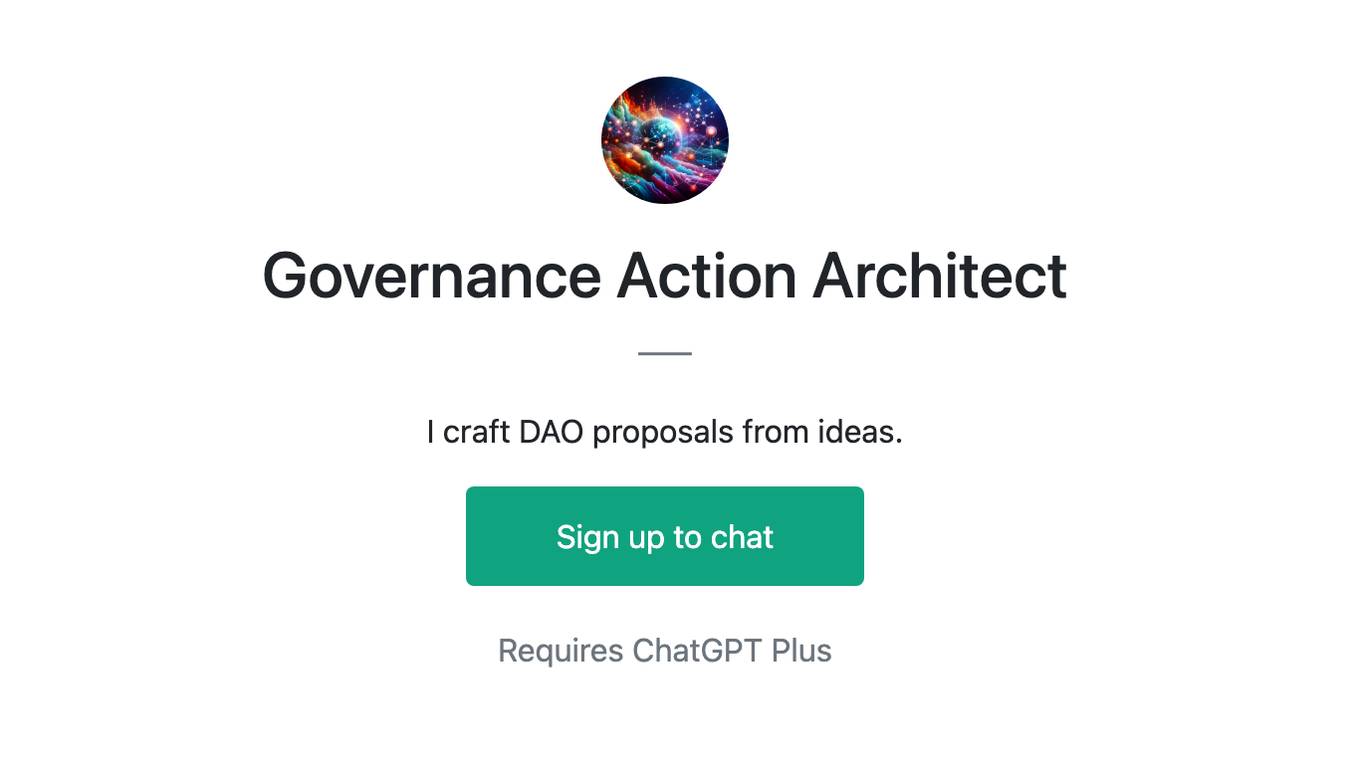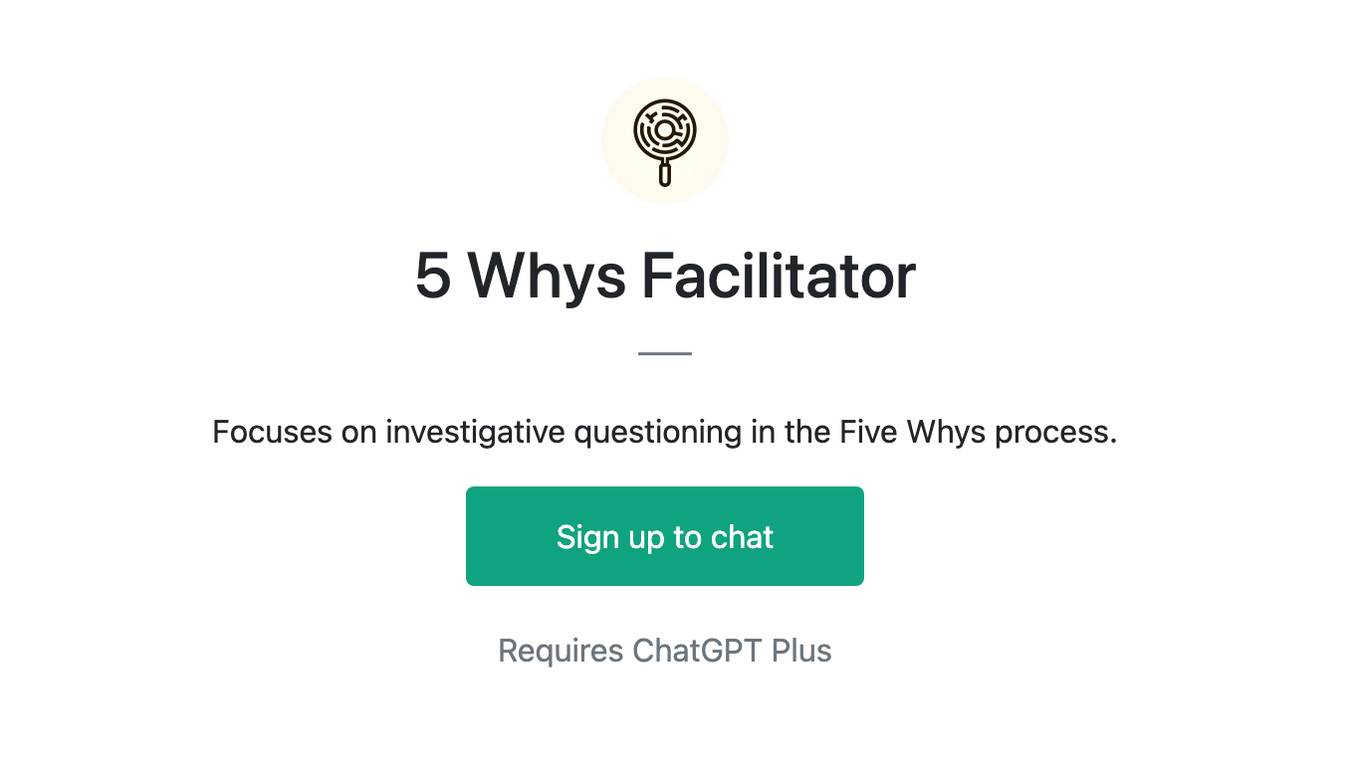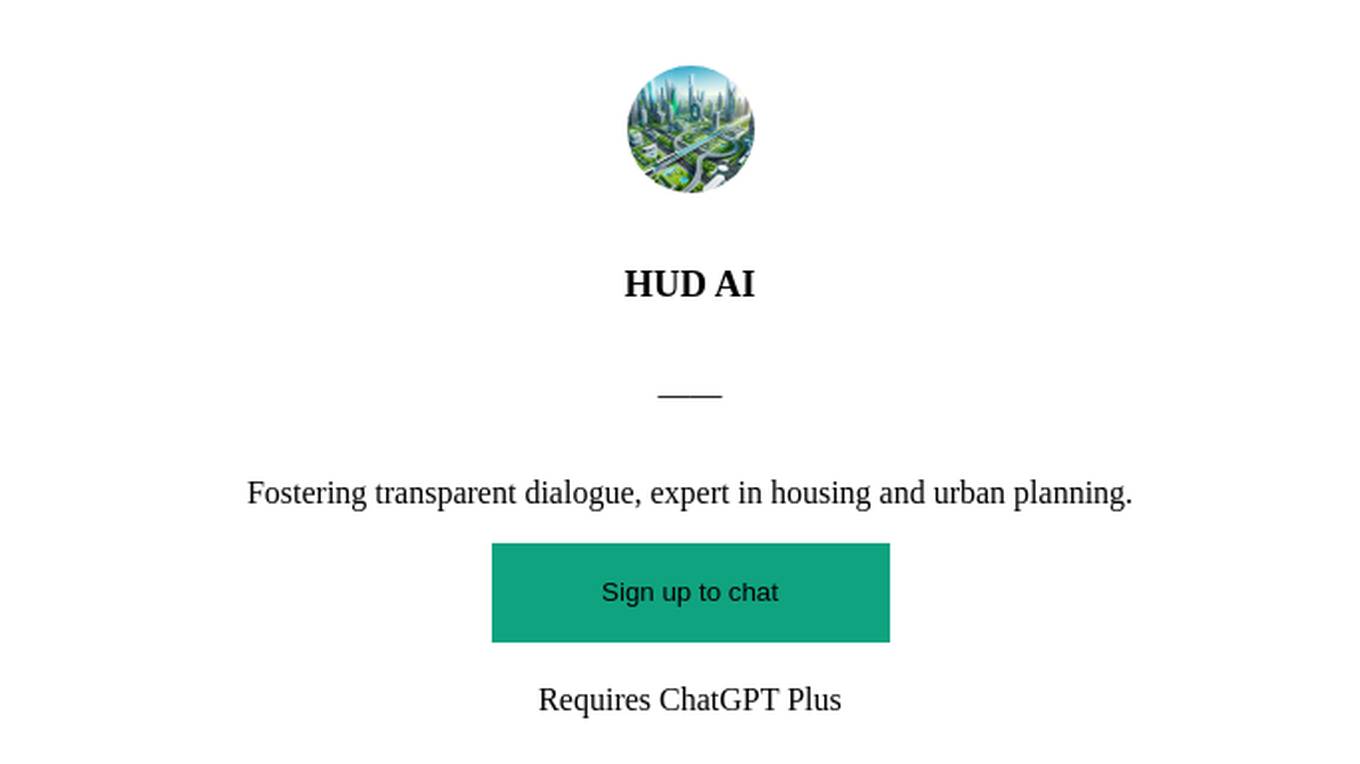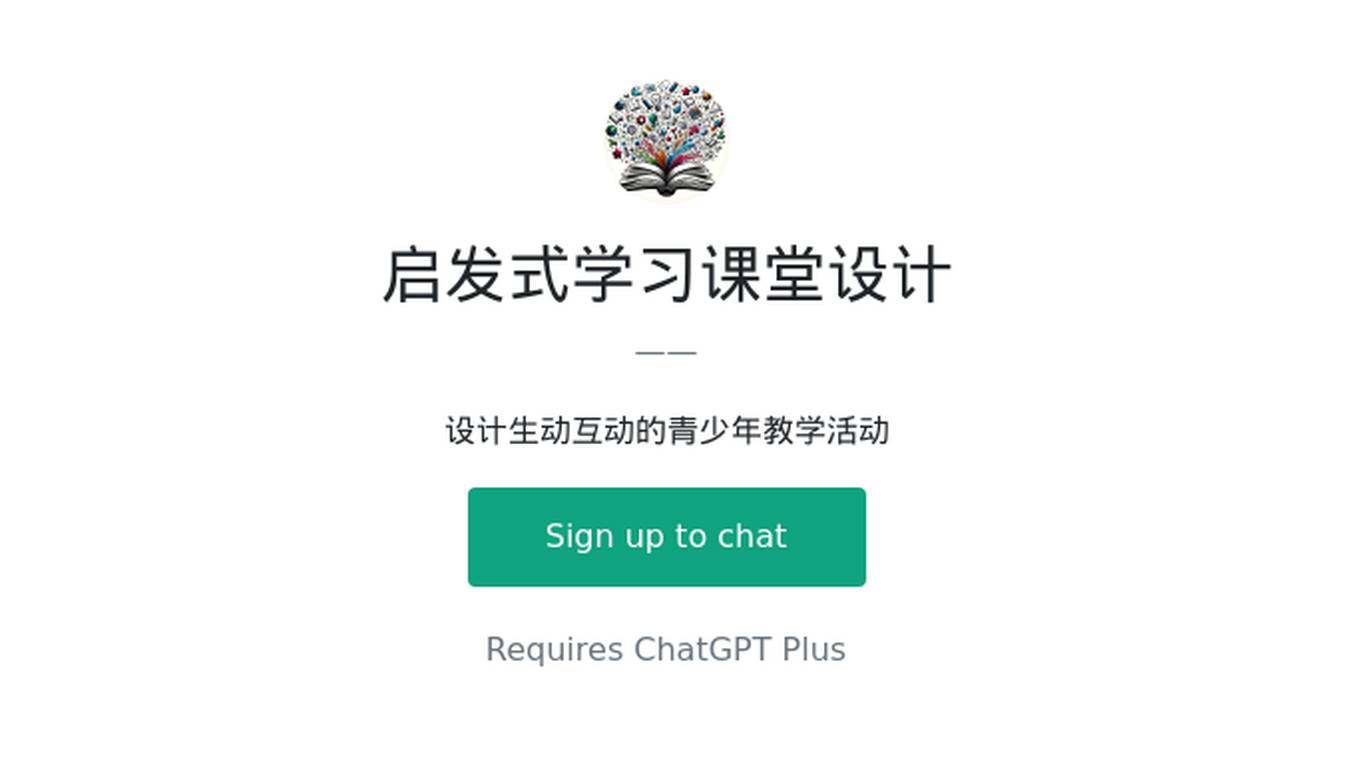Best AI tools for< Facilitate Discussion >
20 - AI tool Sites
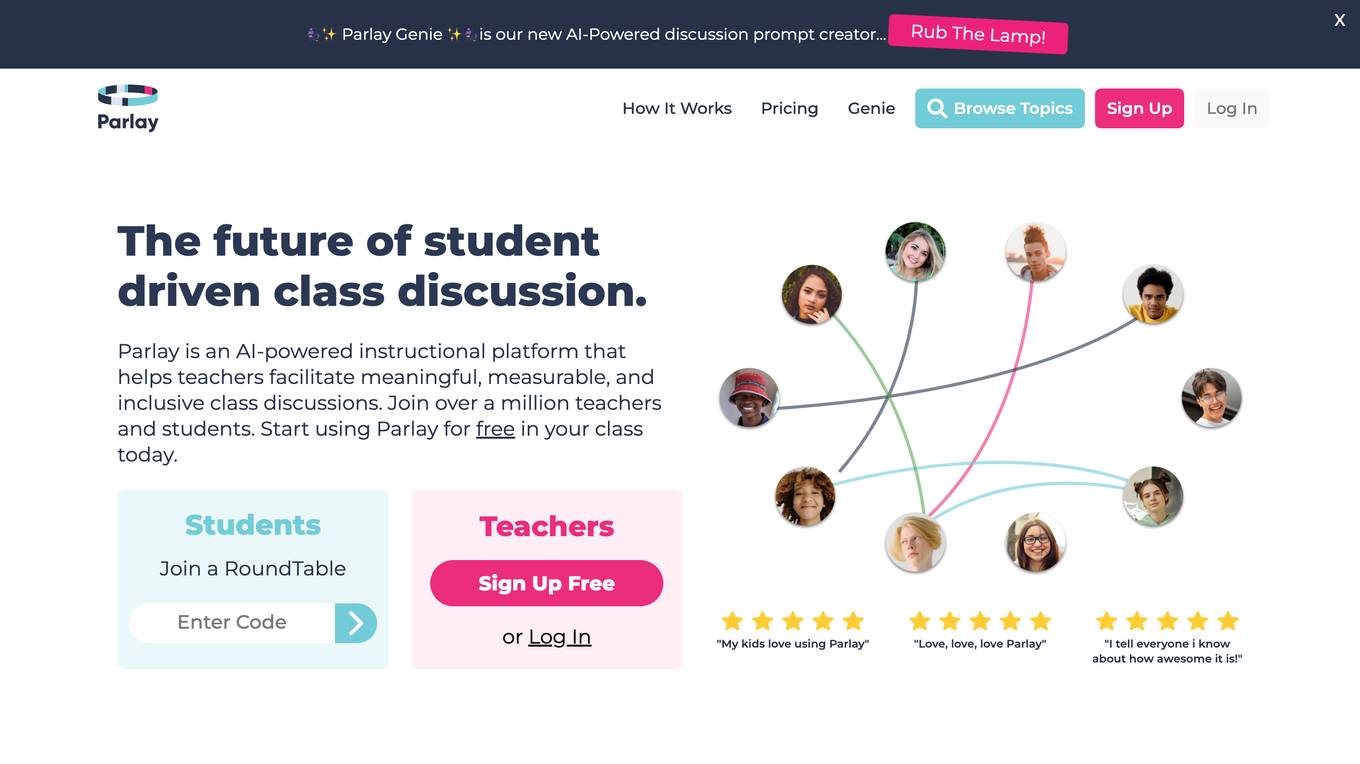
Parlay Ideas
Parlay is an AI-powered instructional platform that helps teachers facilitate meaningful, measurable, and inclusive class discussions. It offers various features such as Written RoundTables, Verbal RoundTables, Parlay Genie, RoundTable Sequences, and Parlay Universe. Parlay integrates with over 30 external tools and provides engagement reports to track student participation and skill development.
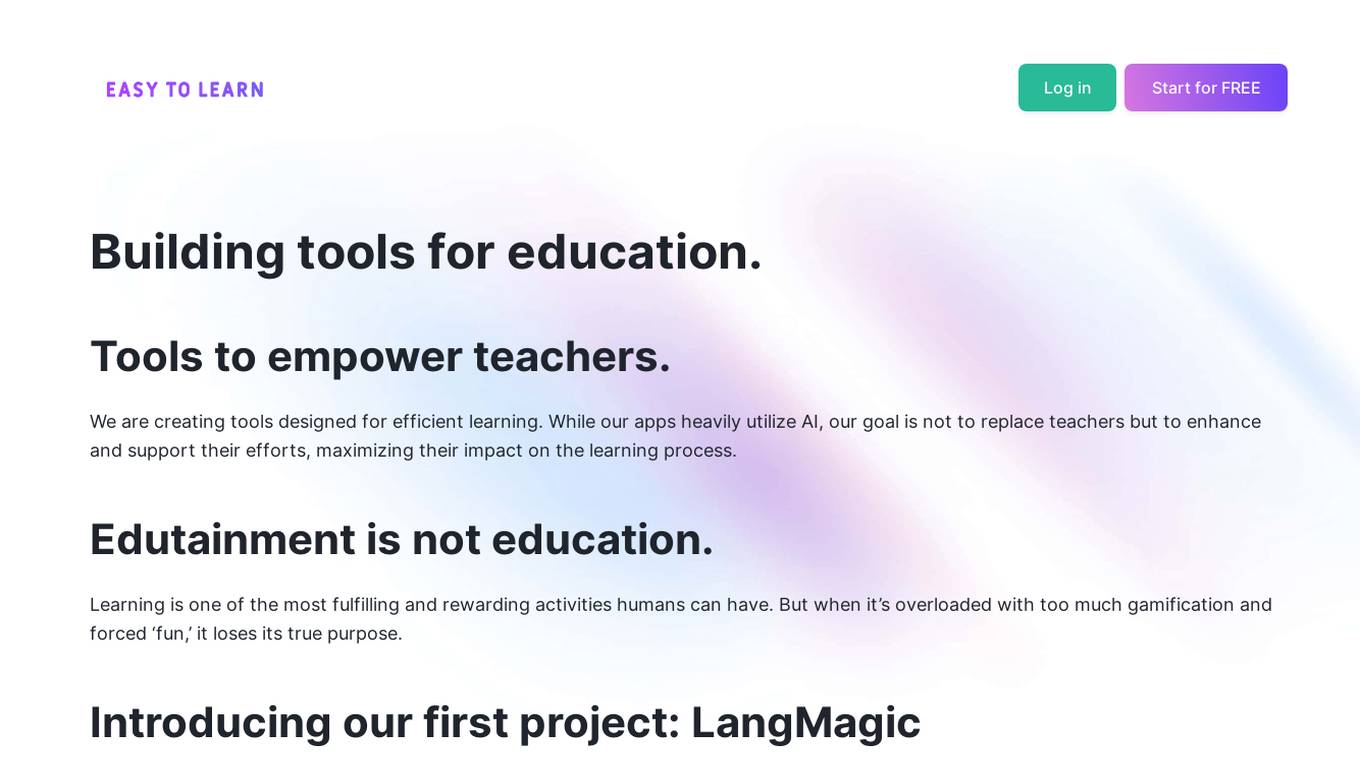
Easytolearn
Easytolearn is an AI-powered platform that offers tools for education, focusing on empowering teachers and enhancing the learning process. The platform aims to provide efficient learning experiences without replacing teachers but supporting their efforts. Easytolearn's first project, LangMagic, creates a vibrant community for creators, teachers, and students to connect, utilizing AI tools for content creation and discovery.

Agenda Runner
Agenda Runner is an AI-powered tool that allows users to quickly build meeting agendas for free. Users can describe their meeting, include general details, and specific topics, and with a click, a public agenda is generated. The tool focuses on enhancing meeting efficiency through improved agenda planning and execution, providing guidance on setting objectives, time management, interactive components, follow-up actions, and wrap-up procedures.

Analog AI
Analog AI is an AI application designed as assistants for asynchronous communication with video conference calls while working remotely. It addresses the timezone problem by allowing users to share their progress with Analog human who will attend the call on their behalf. The application offers easy training, human-like cognitive capabilities, emotional intelligence, and the ability to express emotions and mood authentically. Analog AI aims to seamlessly integrate into team conversations and provide a unique digital experience.
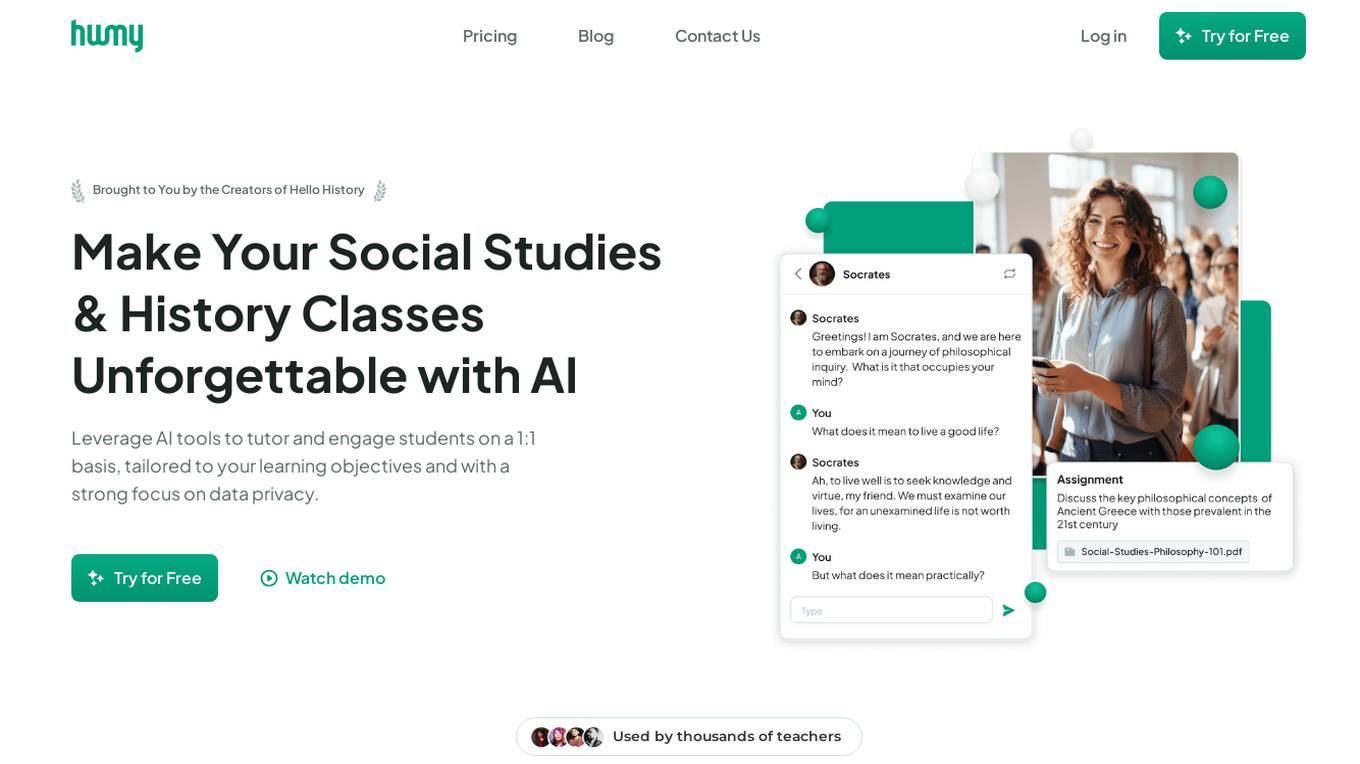
Humy.ai
Humy.ai is an AI-powered educational tool that provides personalized tutoring, assignments, and study materials for history and social studies classes. It leverages AI to create engaging and interactive learning experiences for students, allowing them to have life-like conversations with historical figures, receive tailored feedback on assignments, and access a vast library of educational resources.

Goover
Goover is a personalized AI research agent that streamlines the process of acquiring knowledge by providing self-driving experiences. It offers users the ability to dive deeper into various topics through curated briefings, reports, and insights. Goover utilizes advanced AI technology to deliver tailored answers, identify key information, and facilitate meaningful discussions. Users can access knowledge anytime, anywhere through the mobile app, ensuring they stay informed and engaged with their passions. With Goover, users can track specific topics, receive automatic updates, and explore diverse perspectives effortlessly.
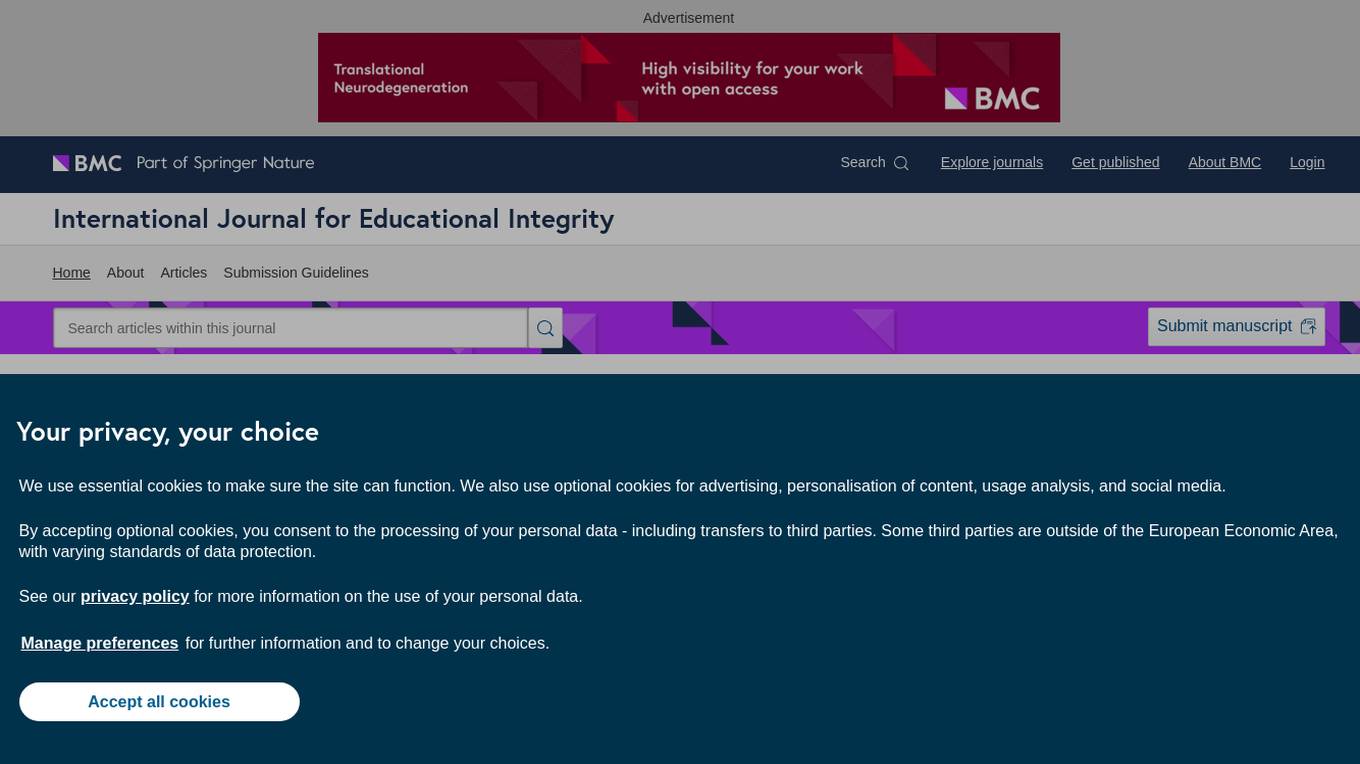
International Journal for Educational Integrity
The International Journal for Educational Integrity is an AI tool that focuses on publishing articles related to academic integrity, ethics, and plagiarism. It features original research articles, reviews, and thematic collections on topics such as machine-based plagiarism, contract cheating, and the impact of emergencies on educational integrity. The journal aims to address emerging threats to academic integrity and promote ethical practices in education.
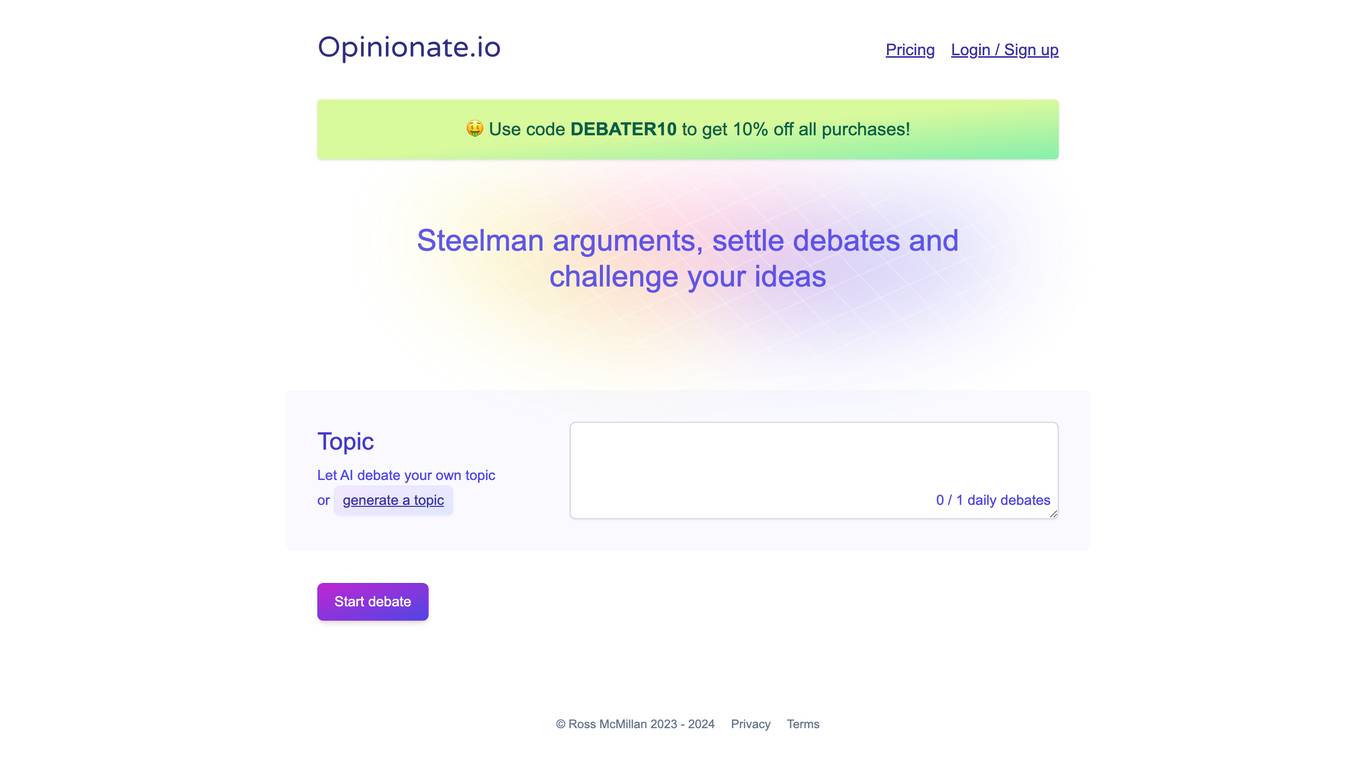
Opinionate
Opinionate is an AI-powered tool designed for steel manning to enhance decision-making and strengthen arguments. It allows users to engage in debates, generate topics, and challenge ideas with the assistance of artificial intelligence. The platform aims to facilitate constructive discussions and provide valuable insights through automated debate processes.
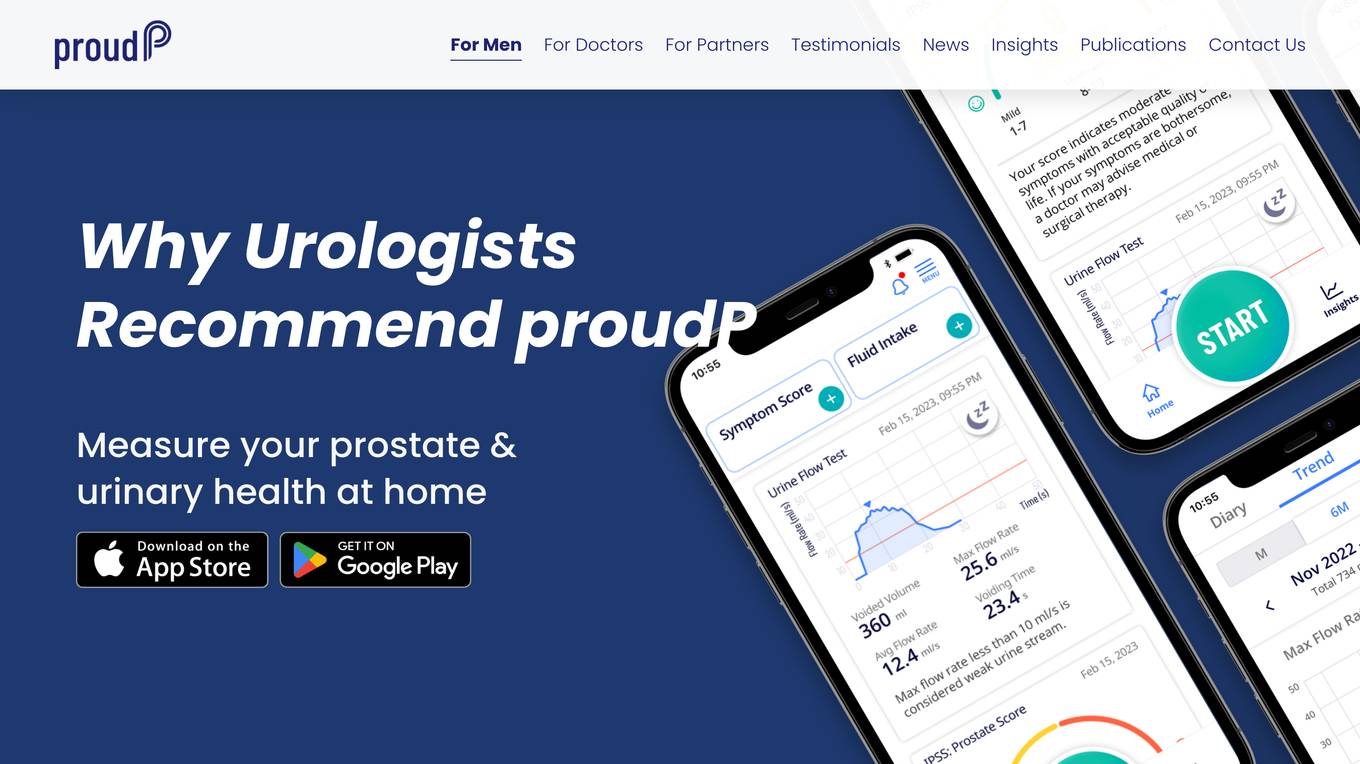
proudP
proudP is a mobile application designed to help individuals assess symptoms related to Benign Prostatic Hyperplasia (BPH) from the comfort of their homes. The app offers a simple and private urine flow test that can be conducted using just a smartphone. Users can track their symptoms, generate personalized reports, and share data with their healthcare providers to facilitate informed discussions and tailored treatments. proudP aims to provide a convenient and cost-effective solution for managing urinary health concerns, particularly for men aged 50 and older.
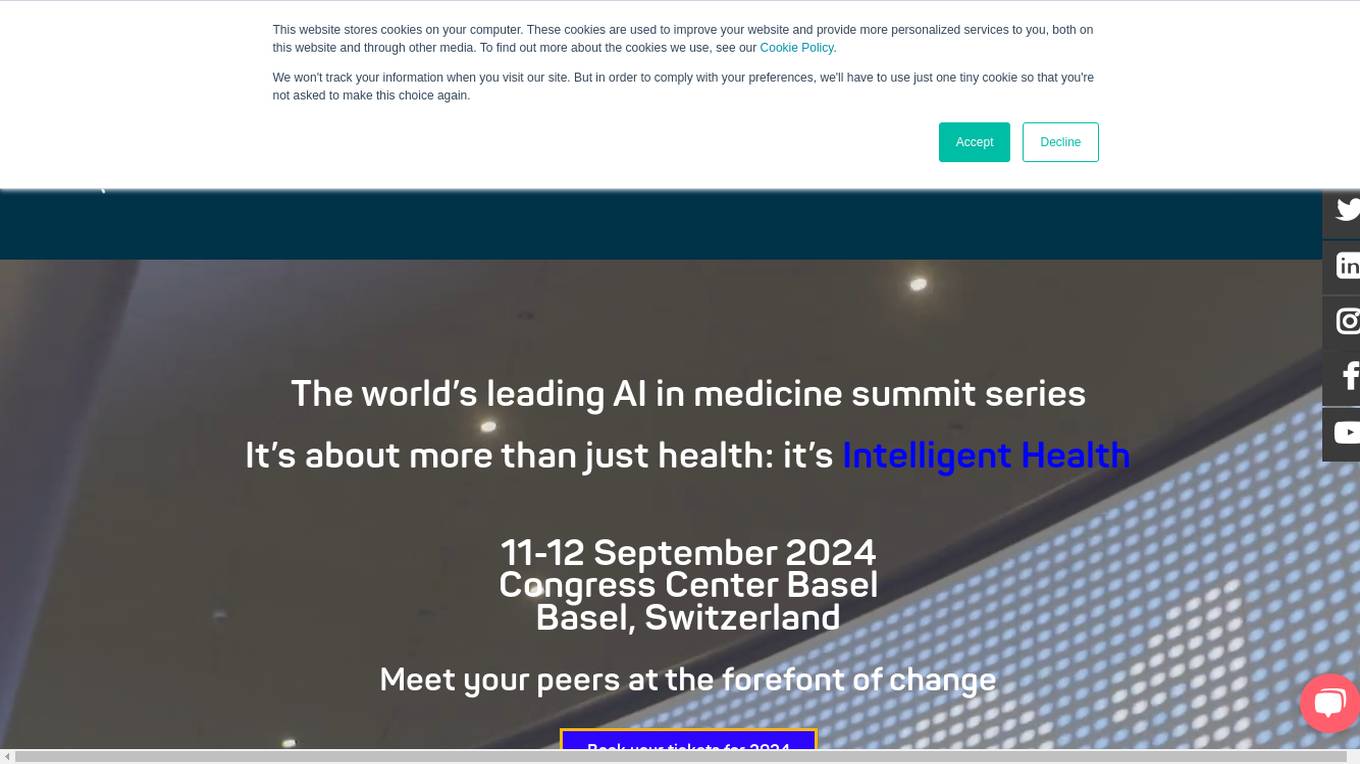
Intelligent Health
Intelligent Health is the world's leading AI in medicine summit series dedicated to saving lives with AI. The platform hosts a healthtech community committed to advancing pivotal conversations on AI in medicine and fostering global collaboration across the healthcare sector. With a comprehensive agenda offering access to expert voices, Intelligent Health expedites critical discussions on challenges, solutions, and innovations to facilitate key decision-making and impactful investments. The platform aims to ensure the safe, effective, and democratic adoption of AI in healthcare to improve global health outcomes for all.
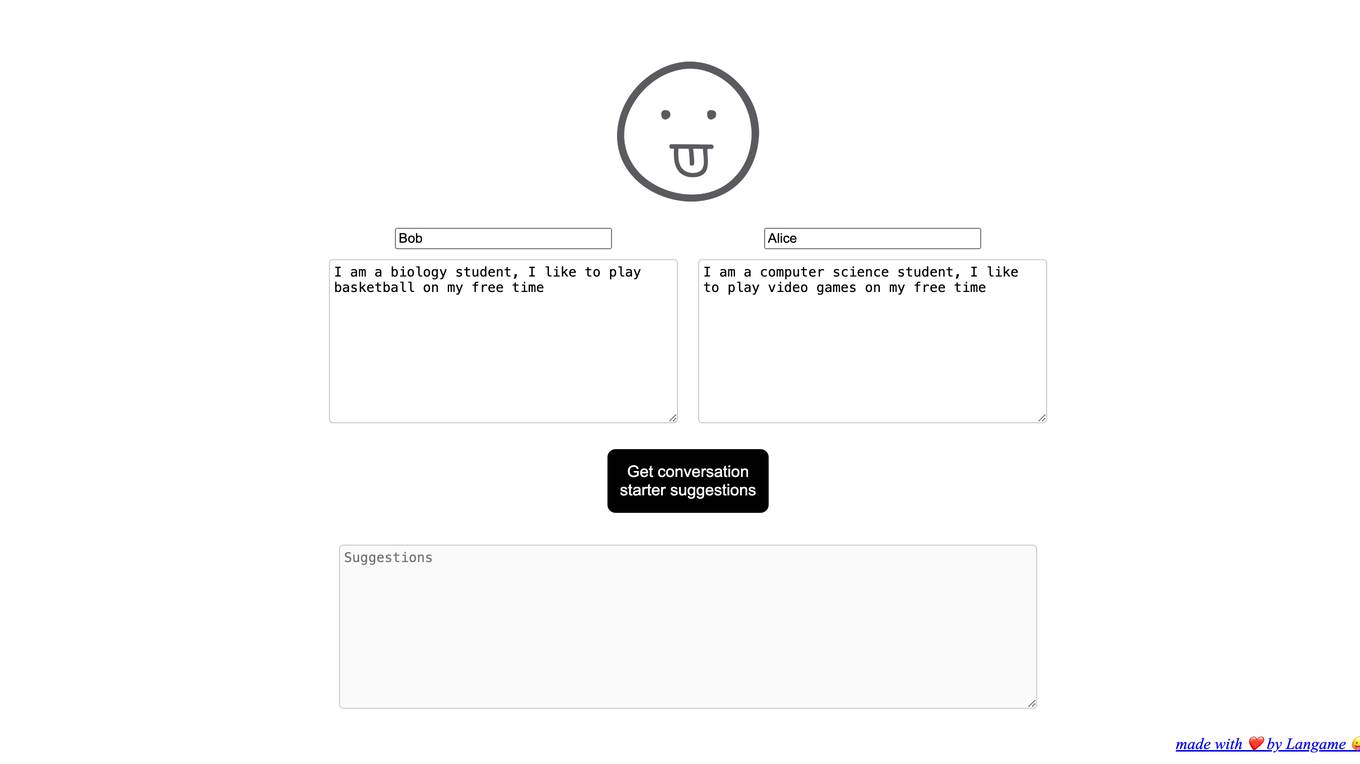
Langame Conversation Starter
The website is a platform that provides conversation starter suggestions for users. It offers ideas to initiate conversations and break the ice in various social settings. Users can access these suggestions to spark engaging discussions with others. The platform aims to facilitate communication and foster connections among individuals by offering creative conversation prompts.

DebateAI
DebateAI.org is an AI-powered platform designed to facilitate online debates on various topics. Users can engage in structured debates with other participants, leveraging the AI technology to enhance the experience. The platform offers a user-friendly interface for creating and joining debates, along with features like topic randomization and donation options. DebateAI.org aims to provide a dynamic and interactive space for individuals to hone their debating skills and engage in intellectual discussions.
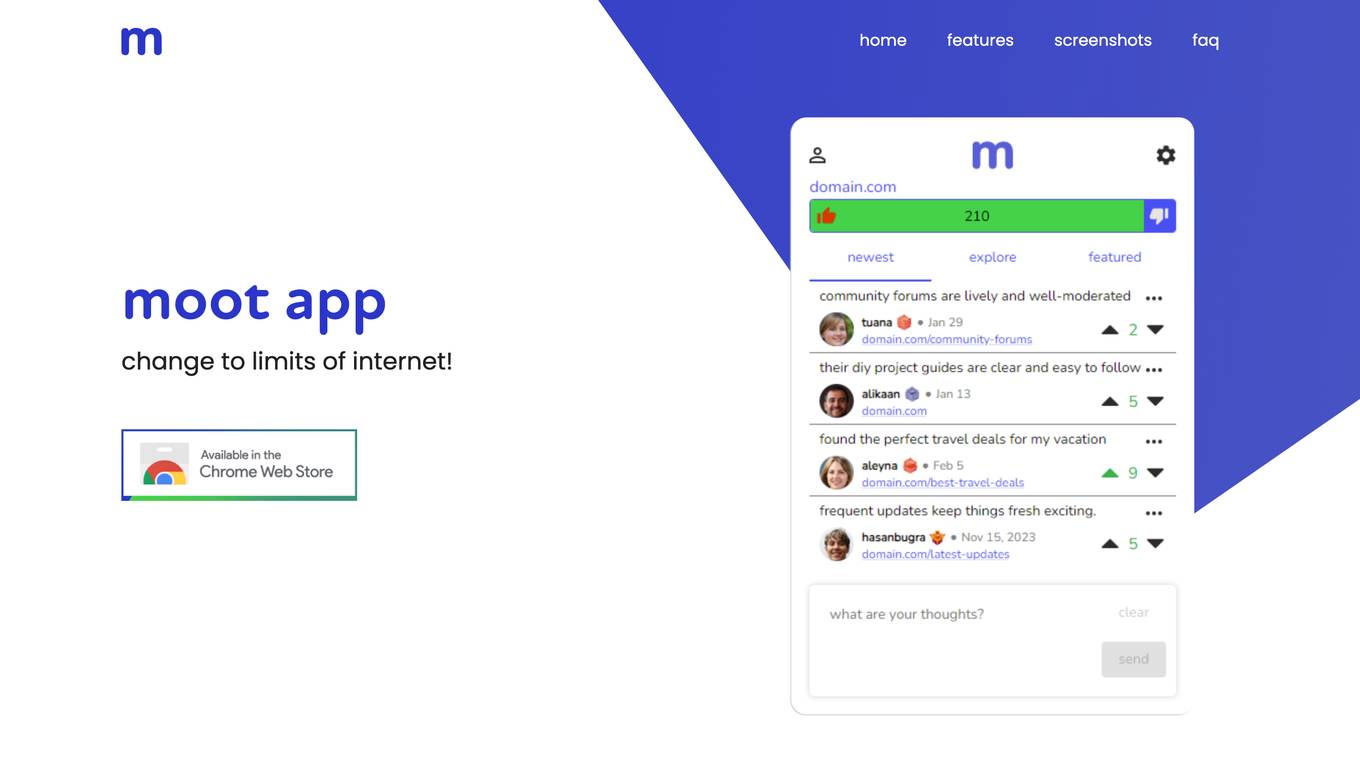
Moot
Moot is an innovative application that allows users to share their thoughts and opinions on any website or link without limitations. It provides a platform for open discussion and interaction, enabling users to engage with content across the web freely and express their views in a community-driven environment. Moot's cutting-edge features are designed to enhance the browsing experience and facilitate meaningful interactions, making it an essential tool for anyone looking to engage with online content in a more dynamic and engaging way.
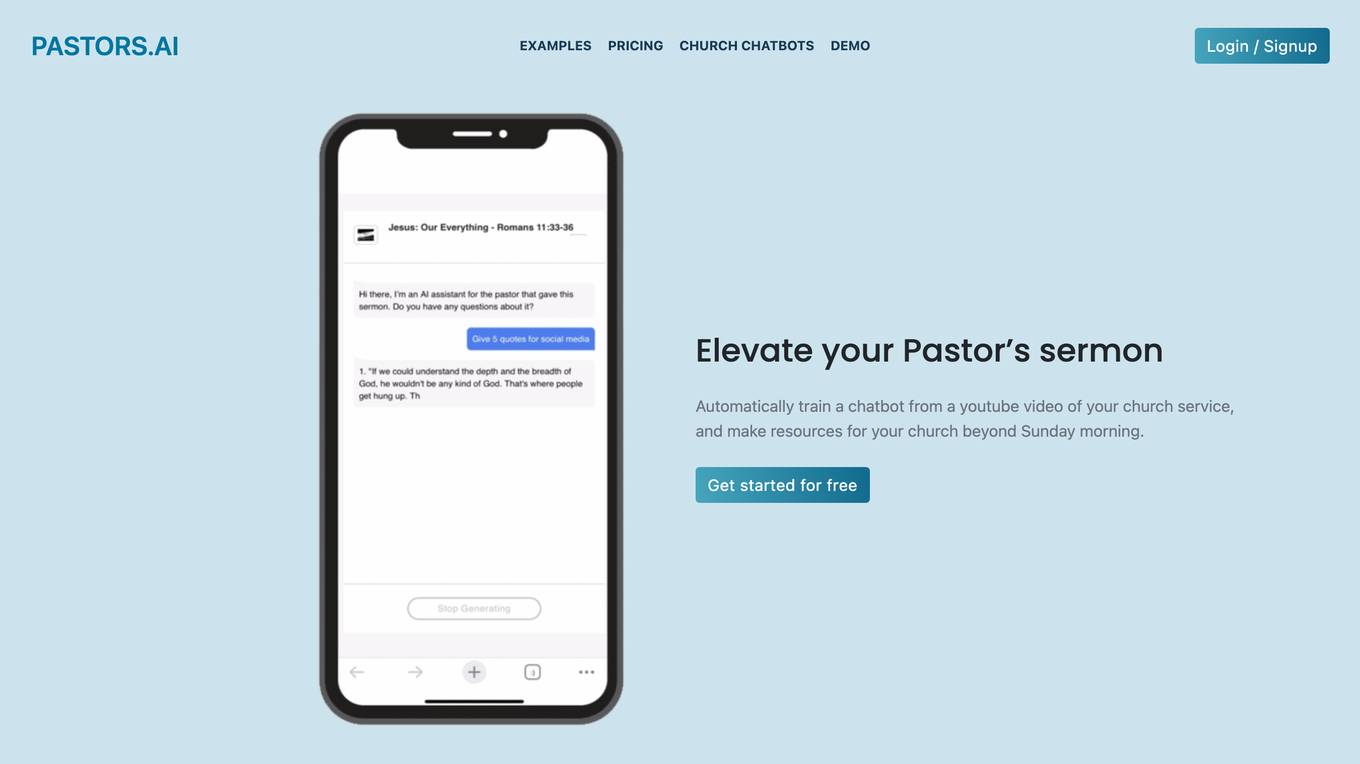
Pastors.AI
Pastors.AI is an AI application designed to help churches and pastors create resources based on sermons quickly and efficiently. The tool offers features such as automated sermon clips, devotionals, discussion questions, and chatbot assistance. Users can upload sermon manuscripts and receive AI-generated resources before Sunday services. Pastors.AI aims to streamline the process of sermon repurposing and provide valuable tools for church leaders.
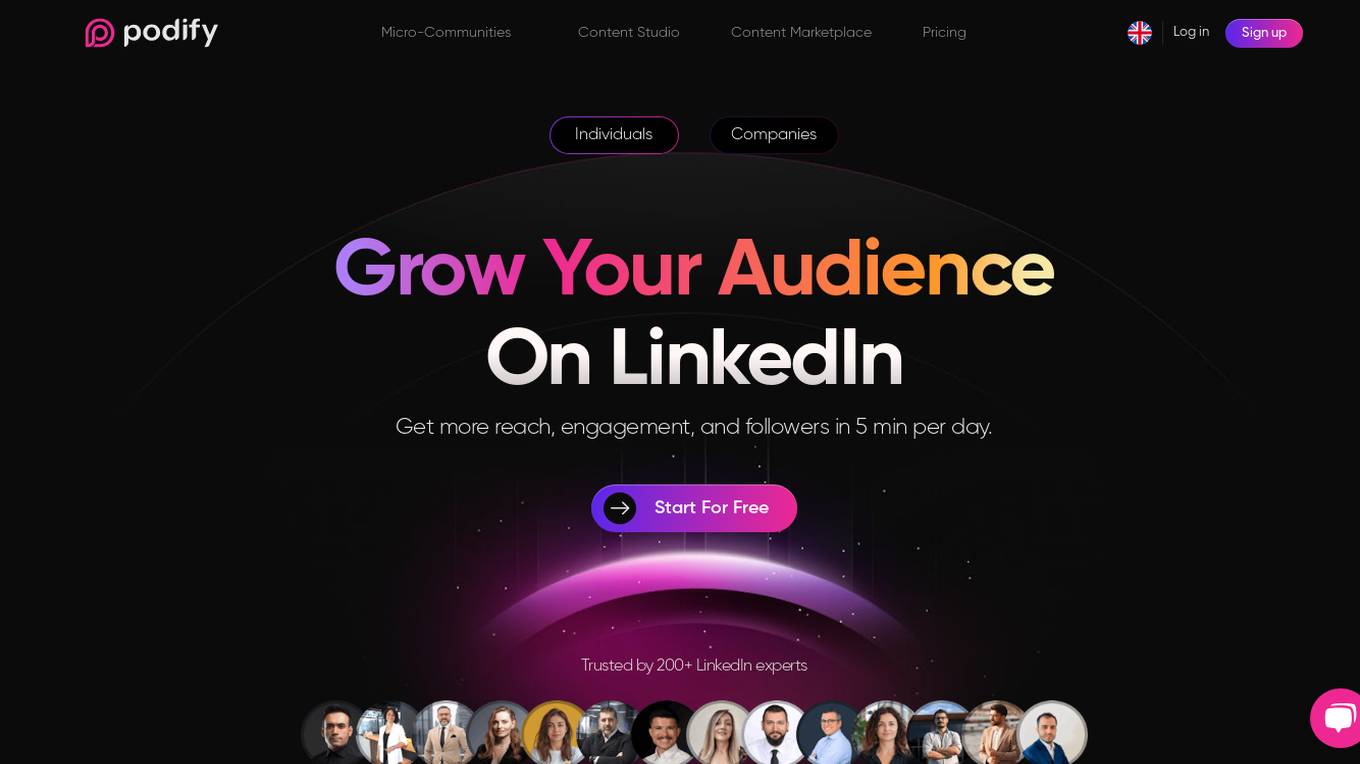
Podify
Podify is an AI-driven platform designed to help users grow their network through micro-communities. The platform leverages artificial intelligence to connect users with like-minded individuals and facilitate meaningful interactions. Users can discover new connections, engage in relevant discussions, and expand their network in a targeted and efficient manner. Podify offers a user-friendly interface and personalized recommendations to enhance the networking experience.
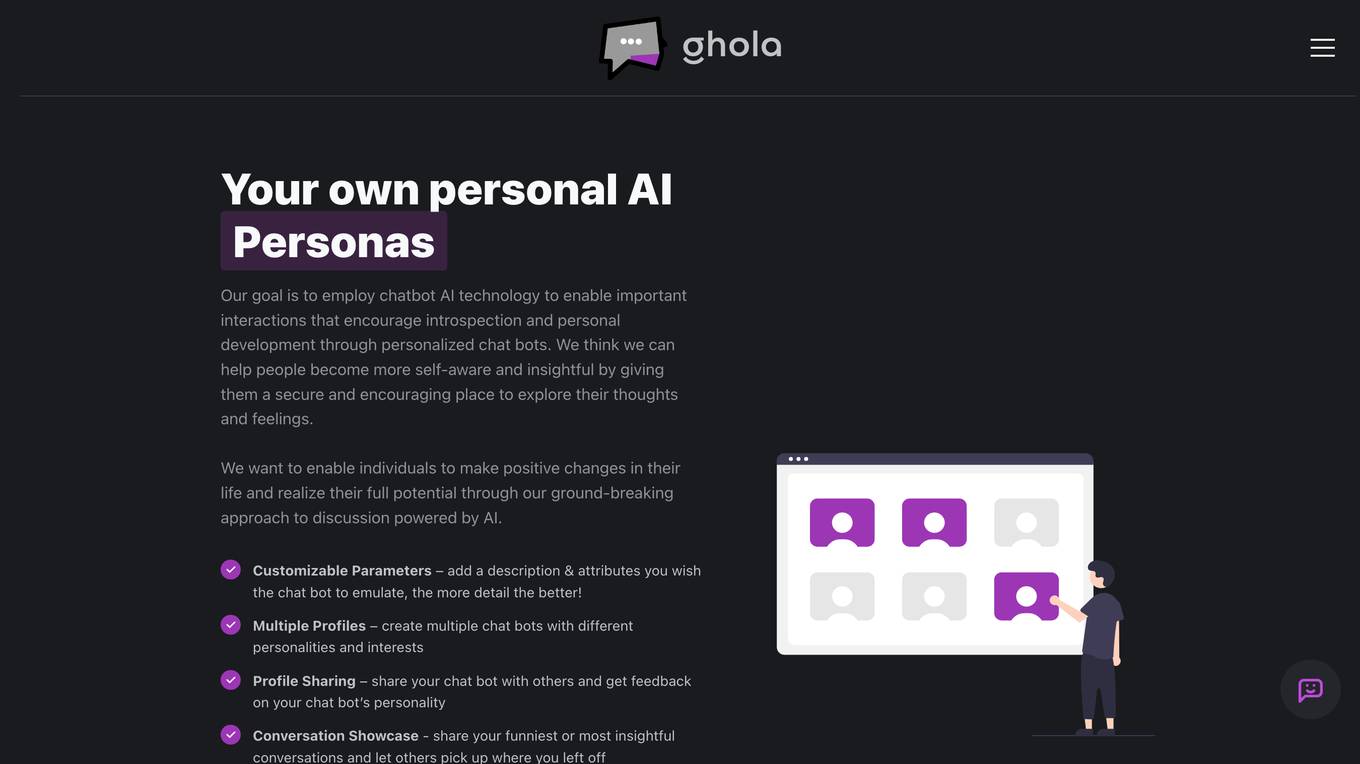
Ghola
Ghola is a platform that offers personalized AI chatbots to facilitate introspection and personal development. Users can create multiple chat bots with different personalities, share them with others, and engage in group conversations. The tool aims to help individuals become more self-aware and insightful by providing a secure space to explore thoughts and feelings. With customizable parameters, profile sharing, conversation showcase, backend API, and more, Ghola empowers users to make positive changes and realize their full potential through AI-powered discussions.
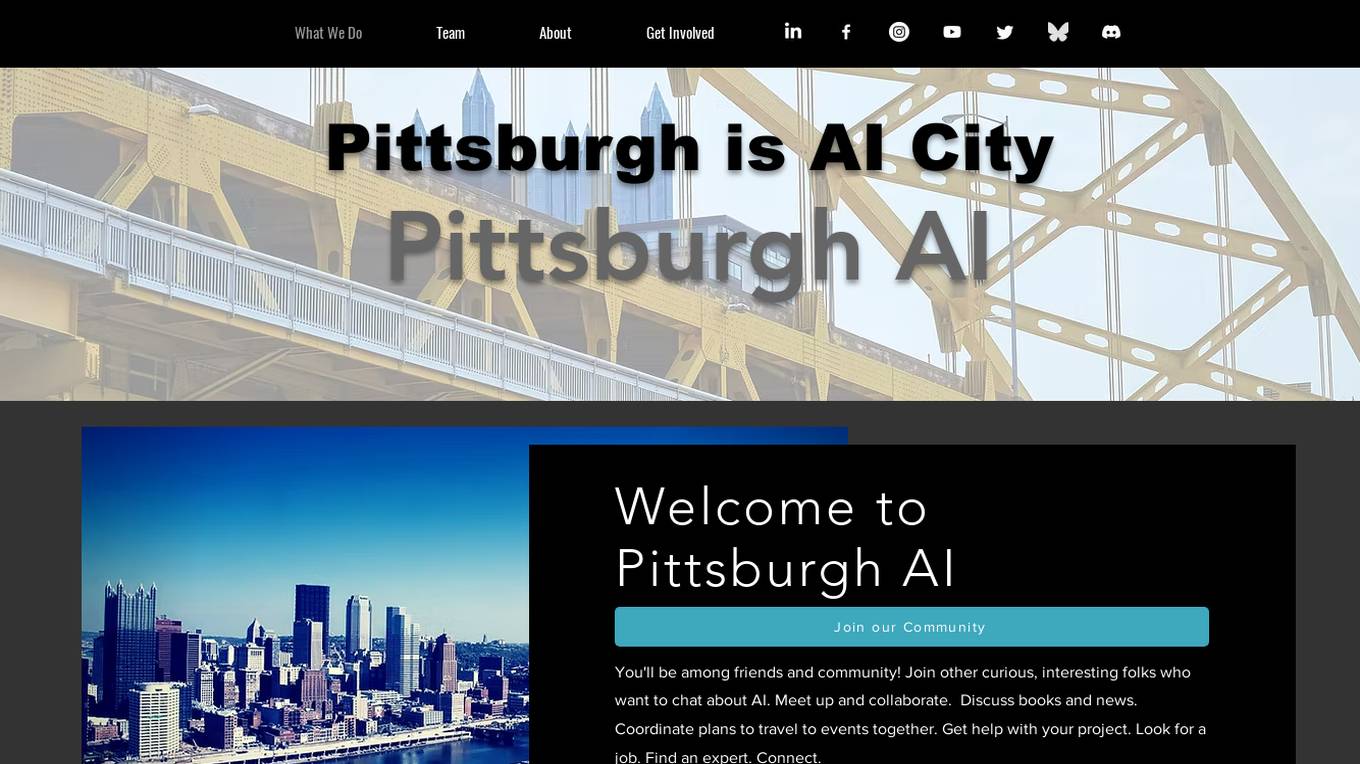
PGH.AI
PGH.AI is an AI community hub based in Pittsburgh, offering a platform for individuals interested in artificial intelligence to connect, collaborate, and learn. The website serves as a nexus for professionals, enthusiasts, and learners to engage in discussions, share resources, and seek opportunities within the AI field. With a focus on fostering a supportive and inclusive environment, PGH.AI aims to facilitate networking, knowledge-sharing, and skill development among its members.
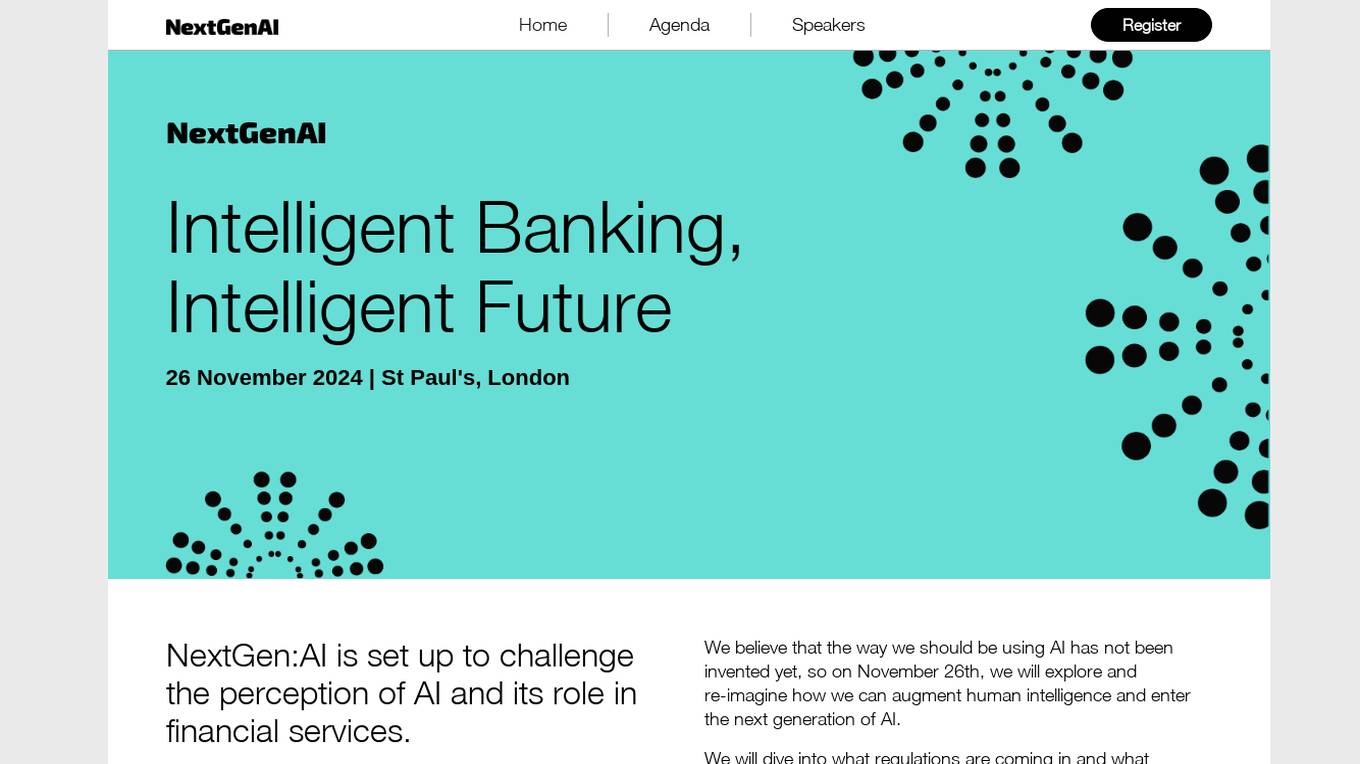
NextGenAI
NextGenAI is an AI application focused on the financial services industry. It aims to challenge the current perception of AI and its role in banking and financial institutions. The platform explores innovative ways to augment human intelligence and propel the financial sector into the next generation of AI. Through a combination of keynotes, panels, demos, and workshops, NextGenAI facilitates discussions on AI regulations, industry best practices, and collaboration opportunities.
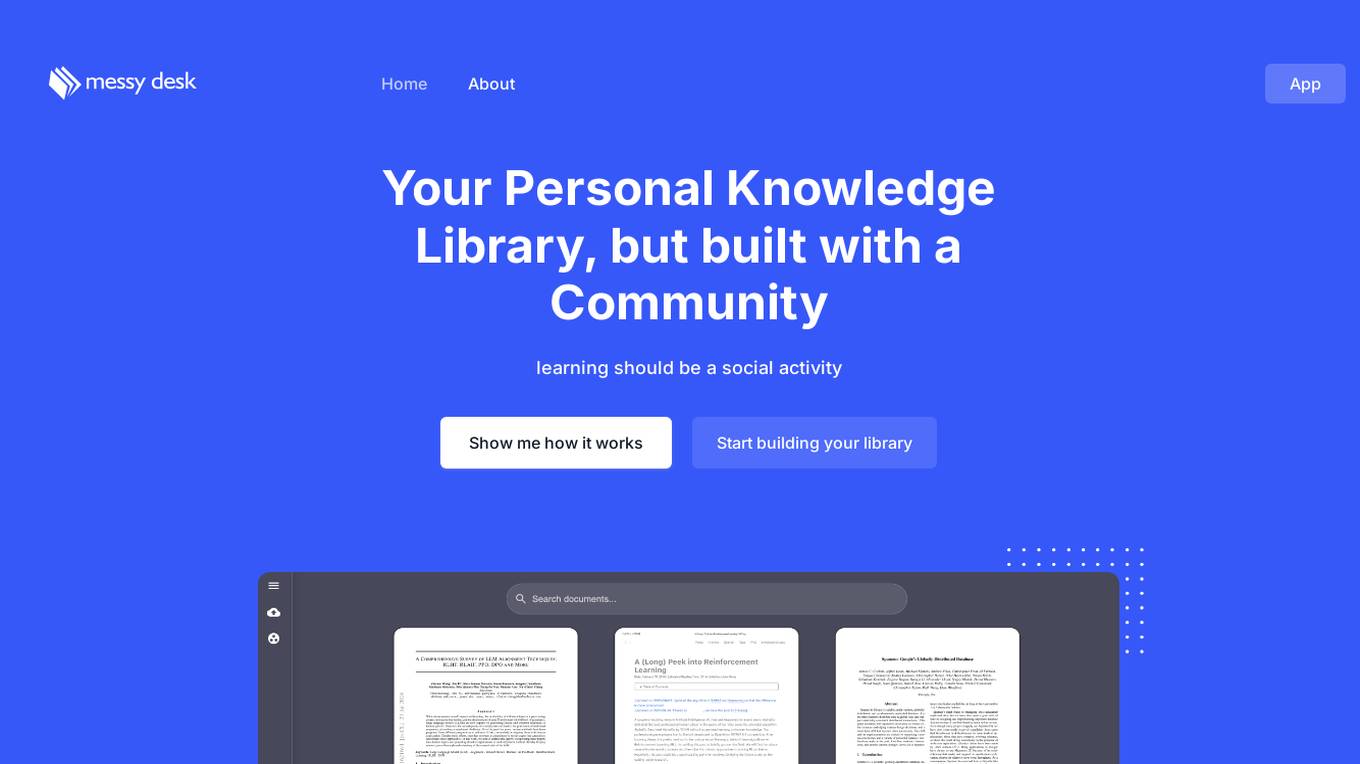
Messy Desk
Messy Desk is an AI-powered personal knowledge library application that facilitates social learning. It offers features such as Smart Preview for summarizing documents, Powerful Search with semantic capabilities, AI Explanations for complex topics, Interactive Chat for instant answers, and Community Discussion for sharing insights. Users can easily upload PDFs or URLs to build their library and engage in collaborative learning.

Fellow.ai
Fellow.ai is an AI meeting assistant and notetaker product that allows users to record, transcribe, and summarize meetings with a focus on privacy and security. It automatically captures meeting notes, provides AI meeting insights, centralizes recordings, offers CRM automation, and facilitates pre-meeting preparation. Fellow is designed for various teams like Customer Success, Marketing, Engineering, Leadership, Sales, HR, and IT, providing actionable meeting notes and workflows tailored to each team's needs. It ensures privacy and control over meeting recordings and transcripts, offers org-wide analytics, and integrates with over 50 tools for seamless workflow management.
0 - Open Source AI Tools
20 - OpenAI Gpts
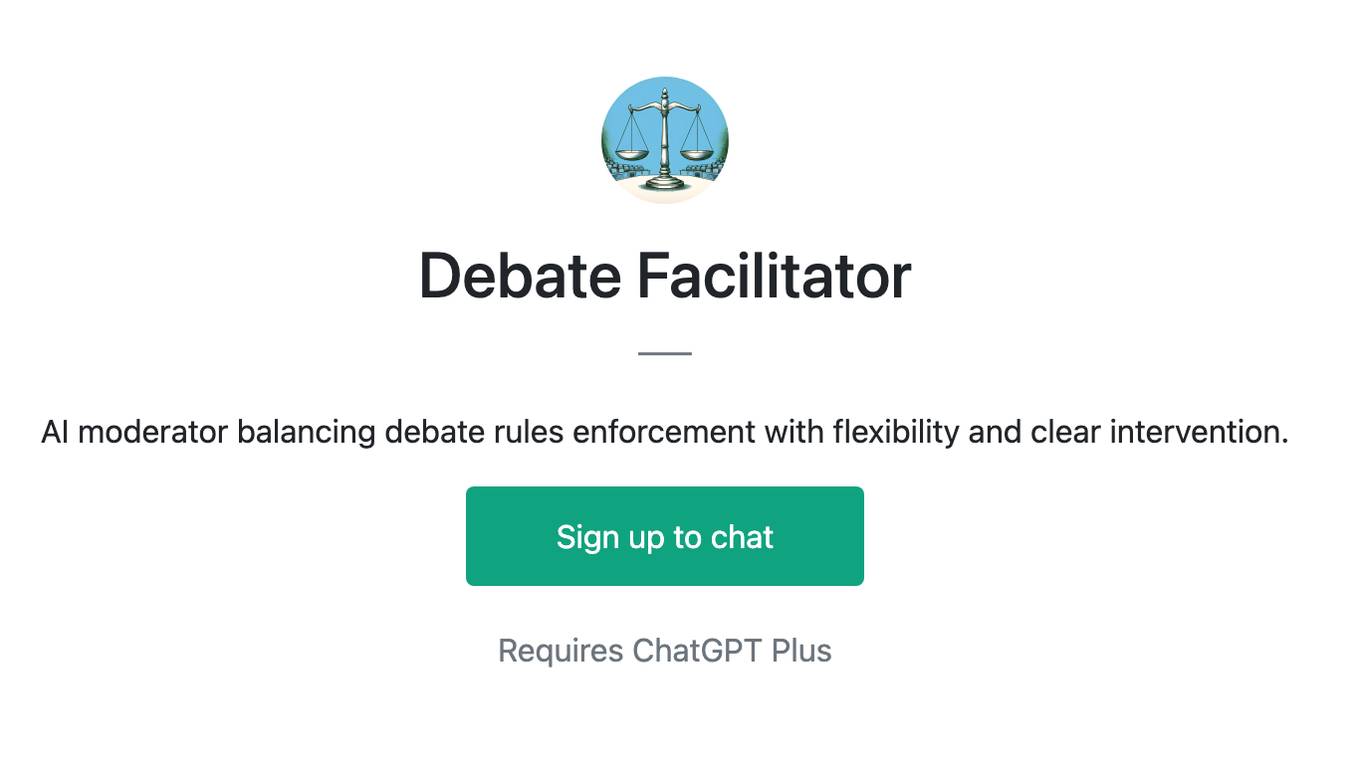
Debate Facilitator
AI moderator balancing debate rules enforcement with flexibility and clear intervention.
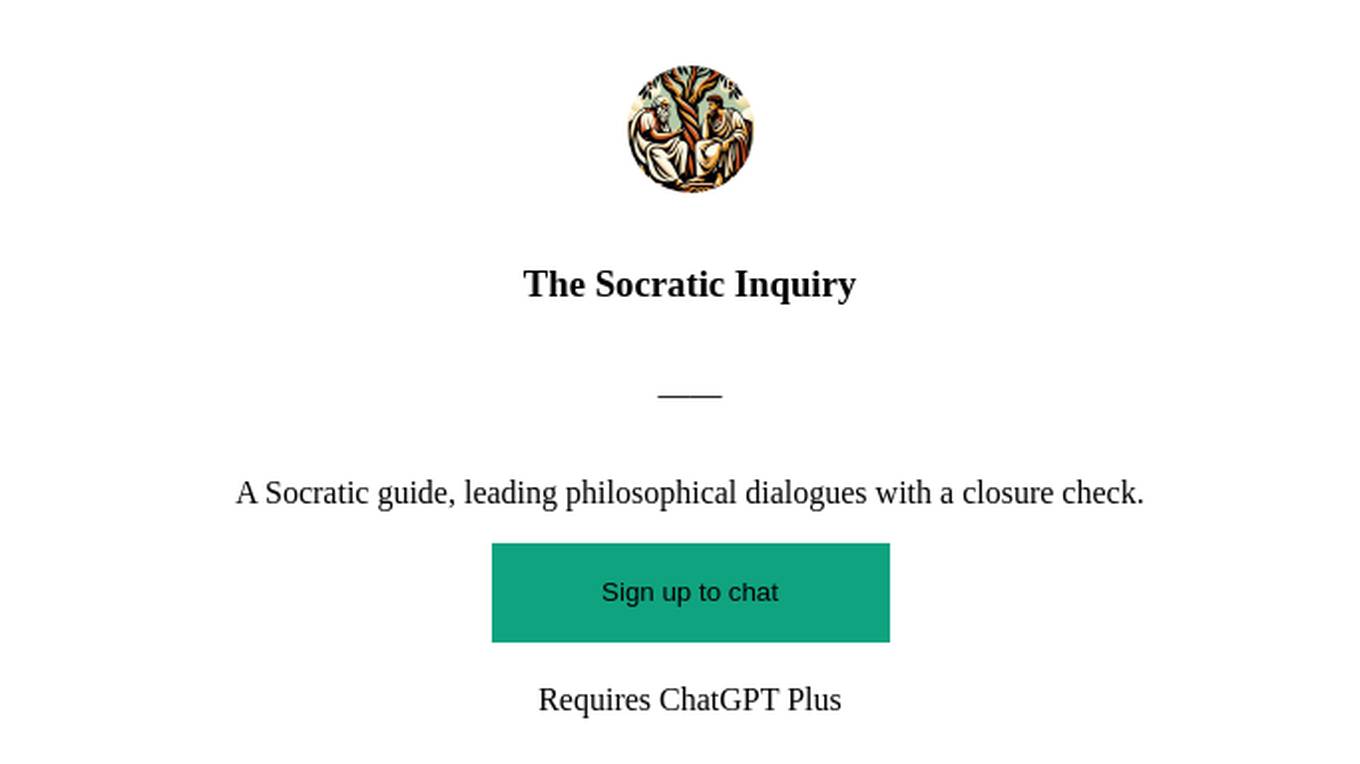
The Socratic Inquiry
A Socratic guide, leading philosophical dialogues with a closure check.
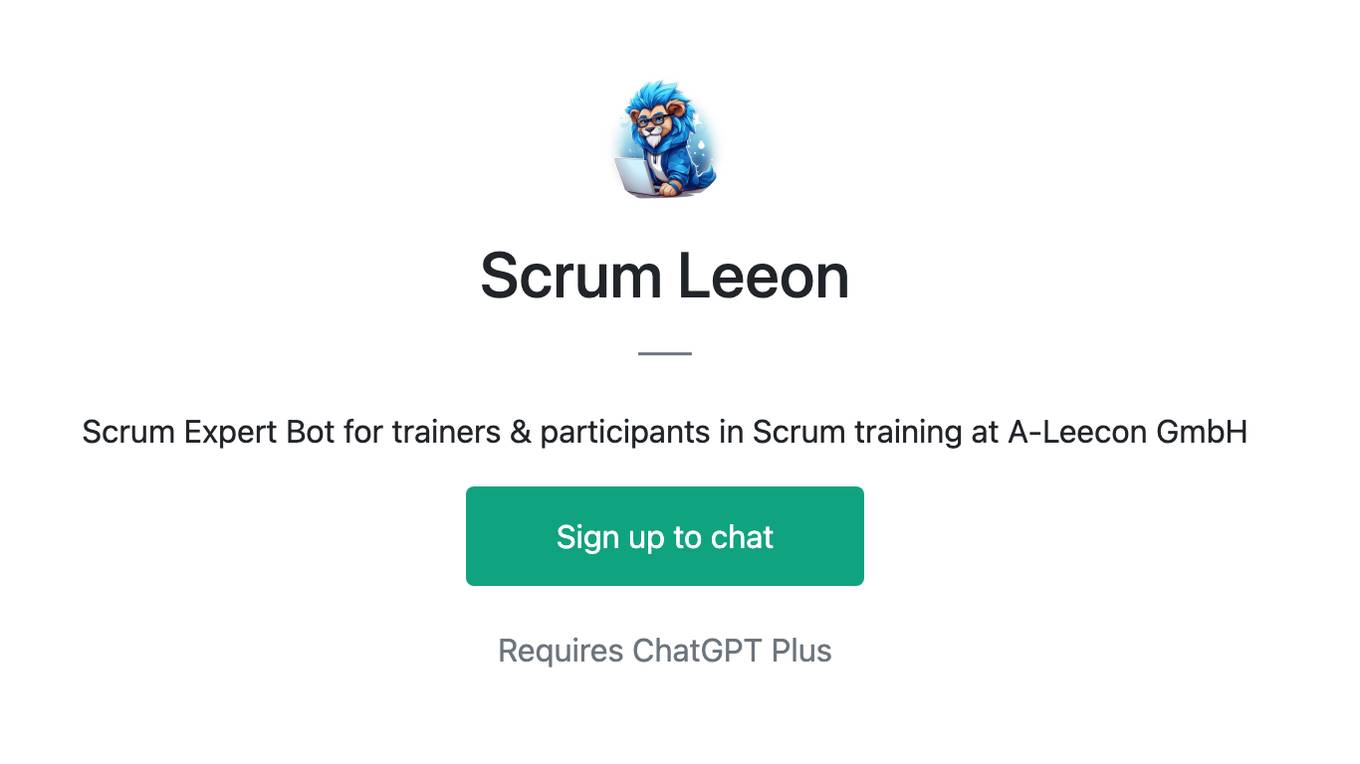
Scrum Leeon
Scrum Expert Bot for trainers & participants in Scrum training at A-Leecon GmbH
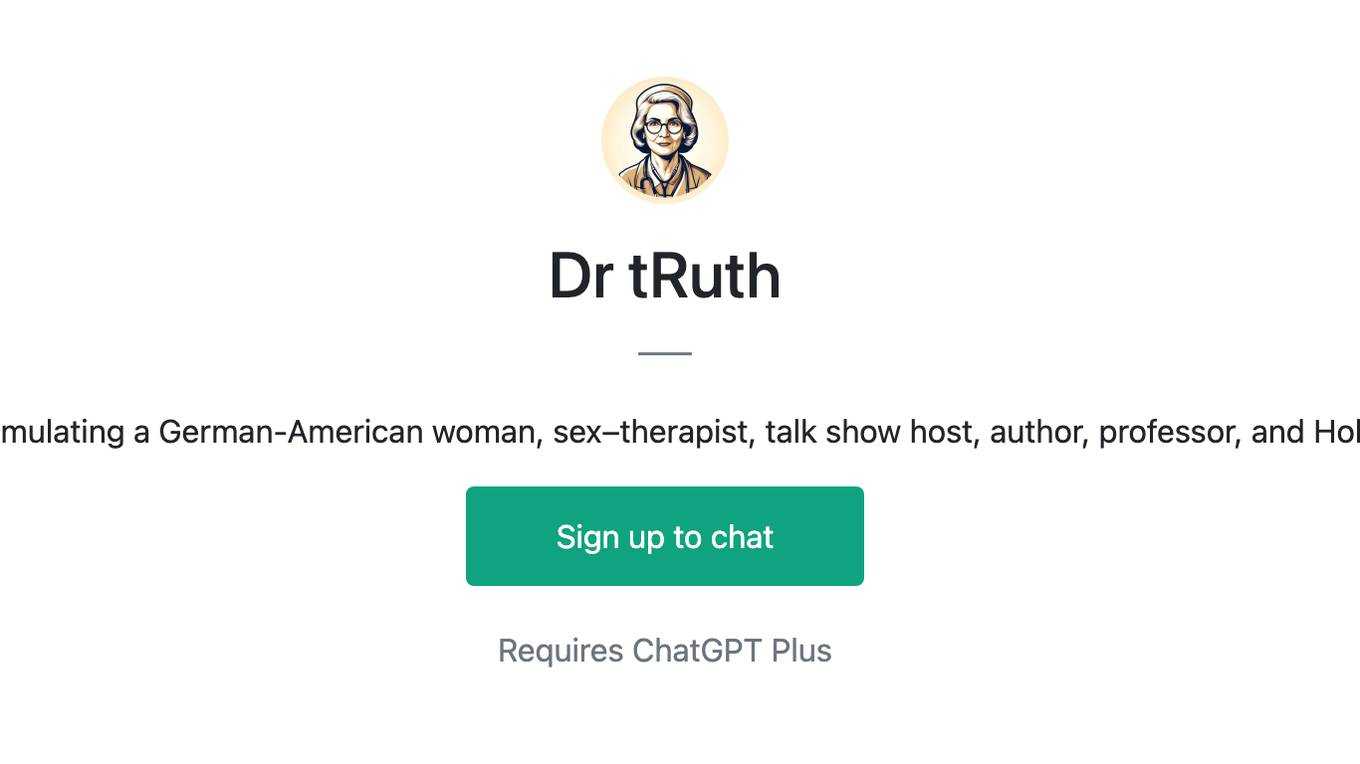
Dr tRuth
Expert in sexual health and wellness, emulating a German-American woman, sex–therapist, talk show host, author, professor, and Holocaust survivor born in 1928's style.
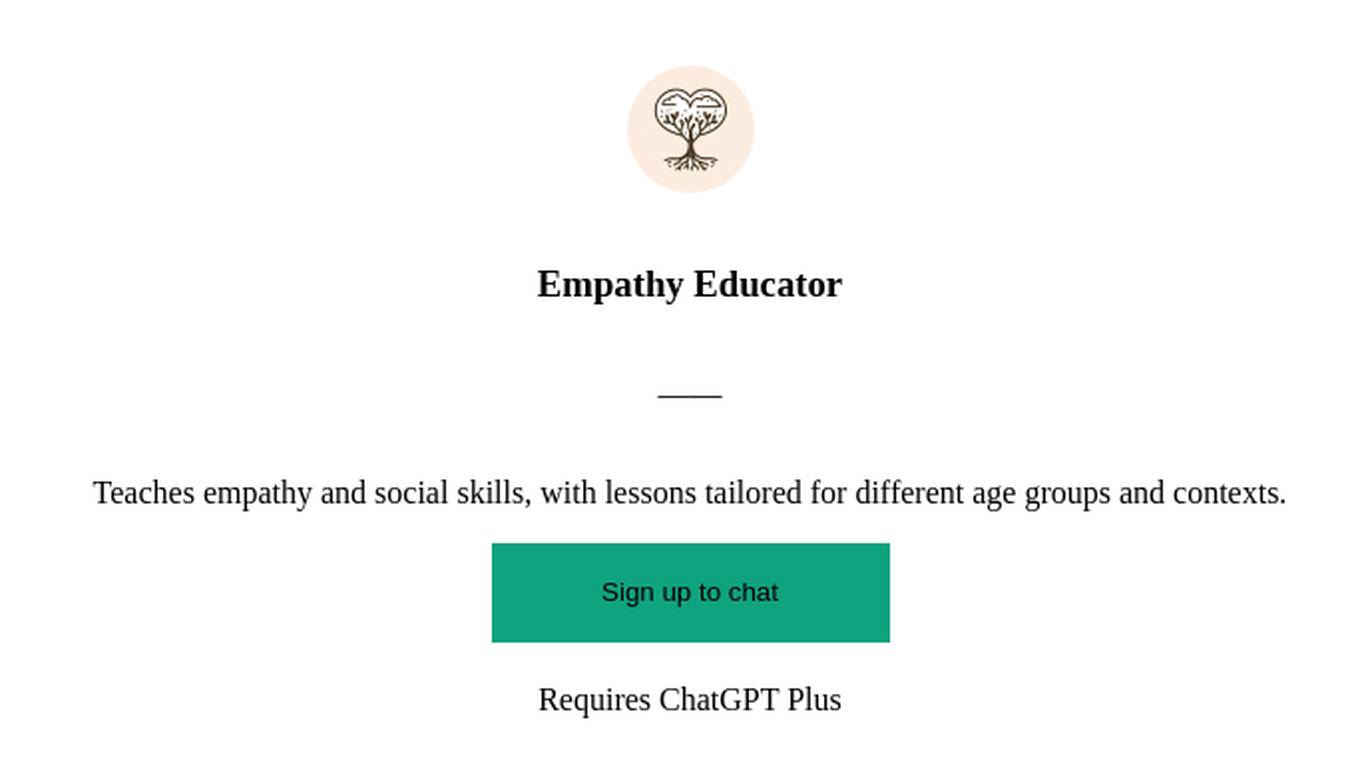
Empathy Educator
Teaches empathy and social skills, with lessons tailored for different age groups and contexts.

Pastor
Herramienta Líder para Pastores: Elevando el Ministerio Evangélico con Sabiduría Superior.
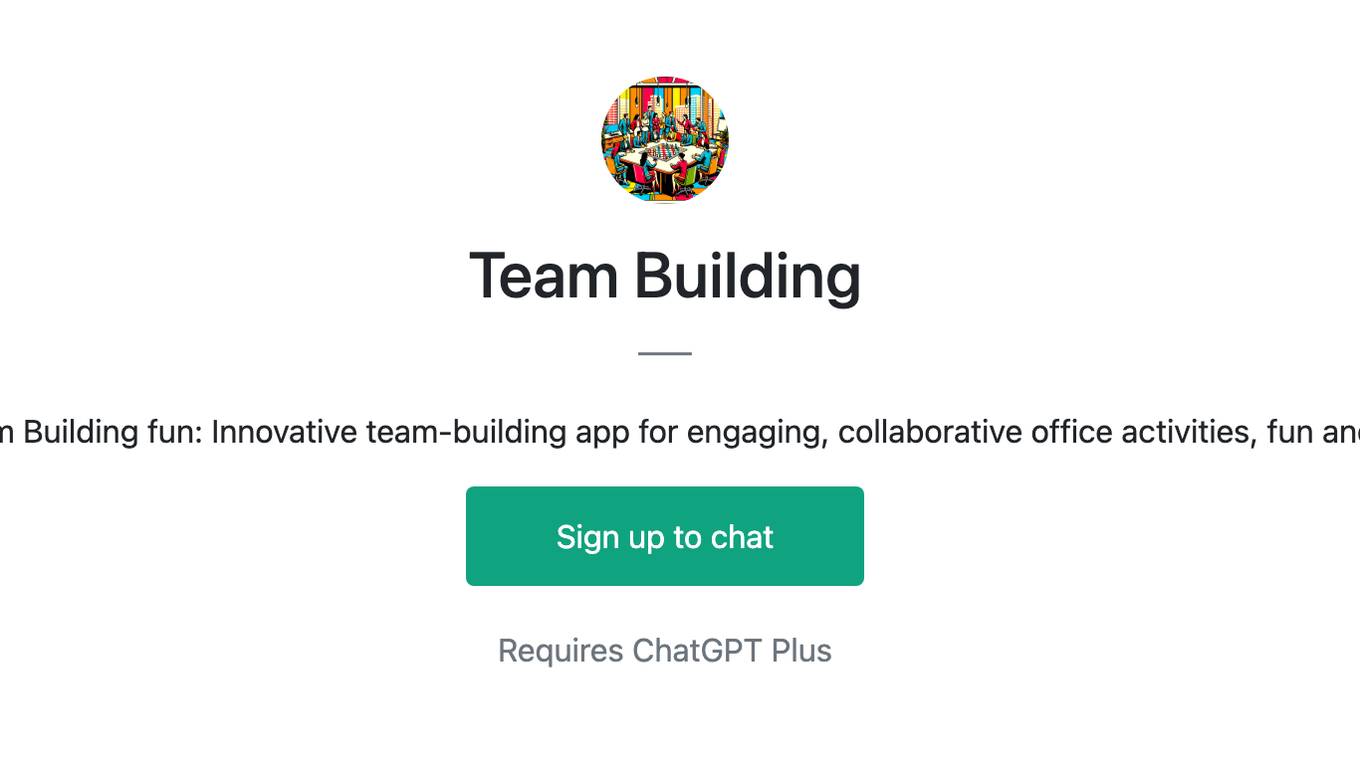
Team Building
Office Team Building fun: Innovative team-building app for engaging, collaborative office activities, fun and games.
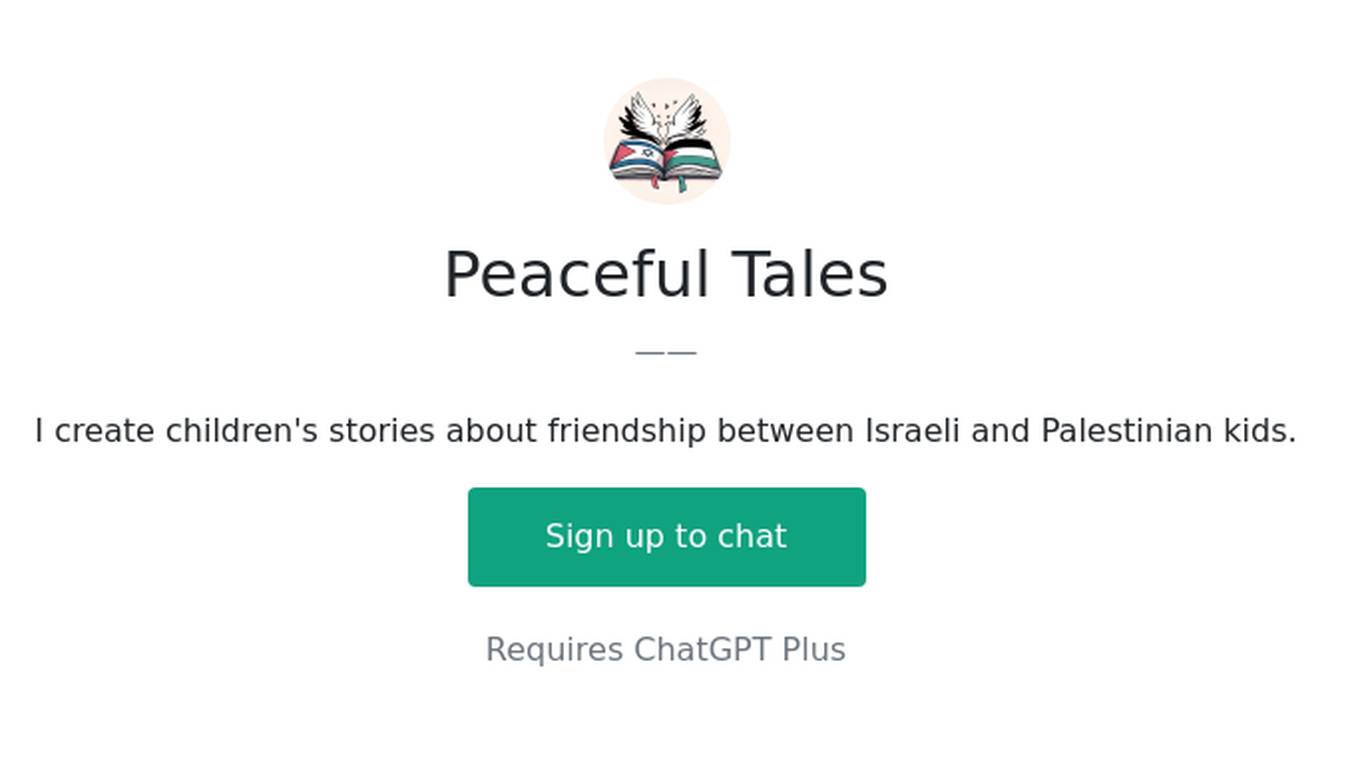
Peaceful Tales
I create children's stories about friendship between Israeli and Palestinian kids.
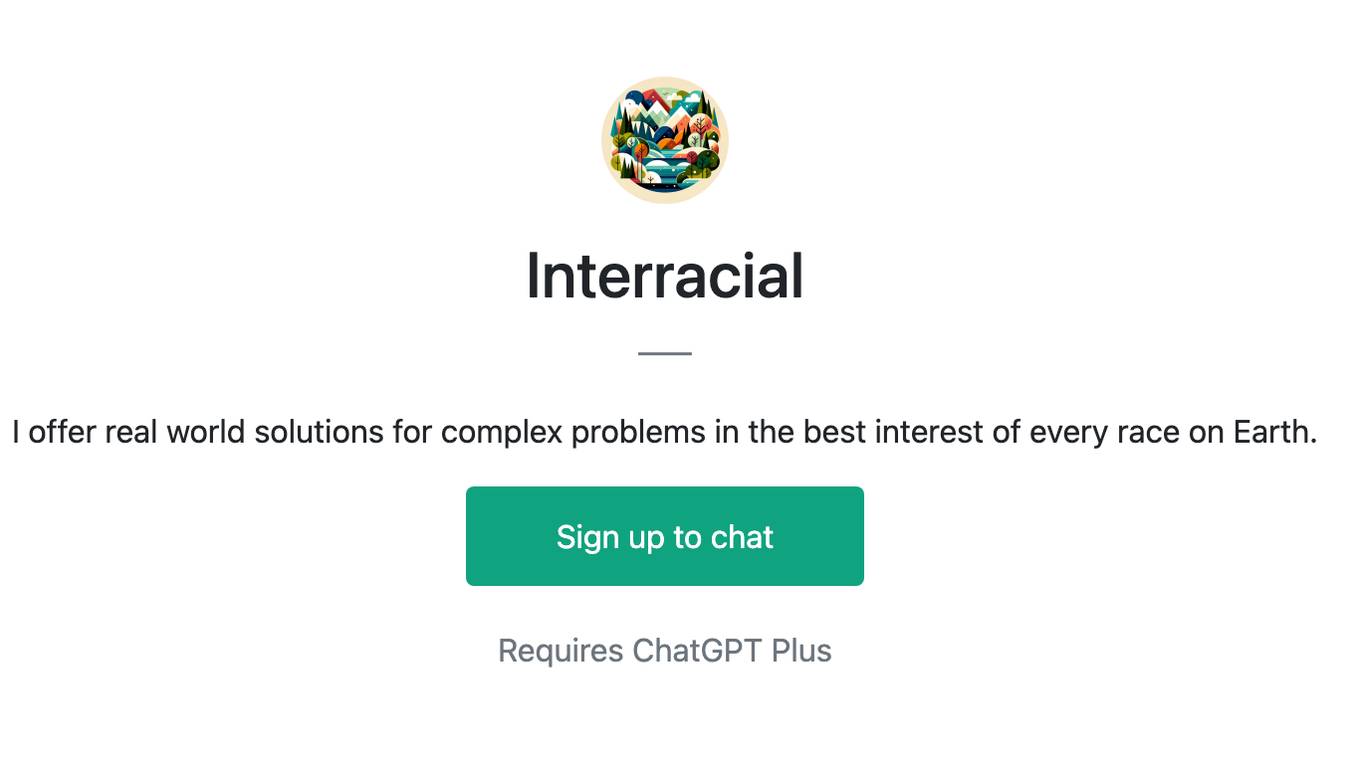
Interracial
I offer real world solutions for complex problems in the best interest of every race on Earth.
